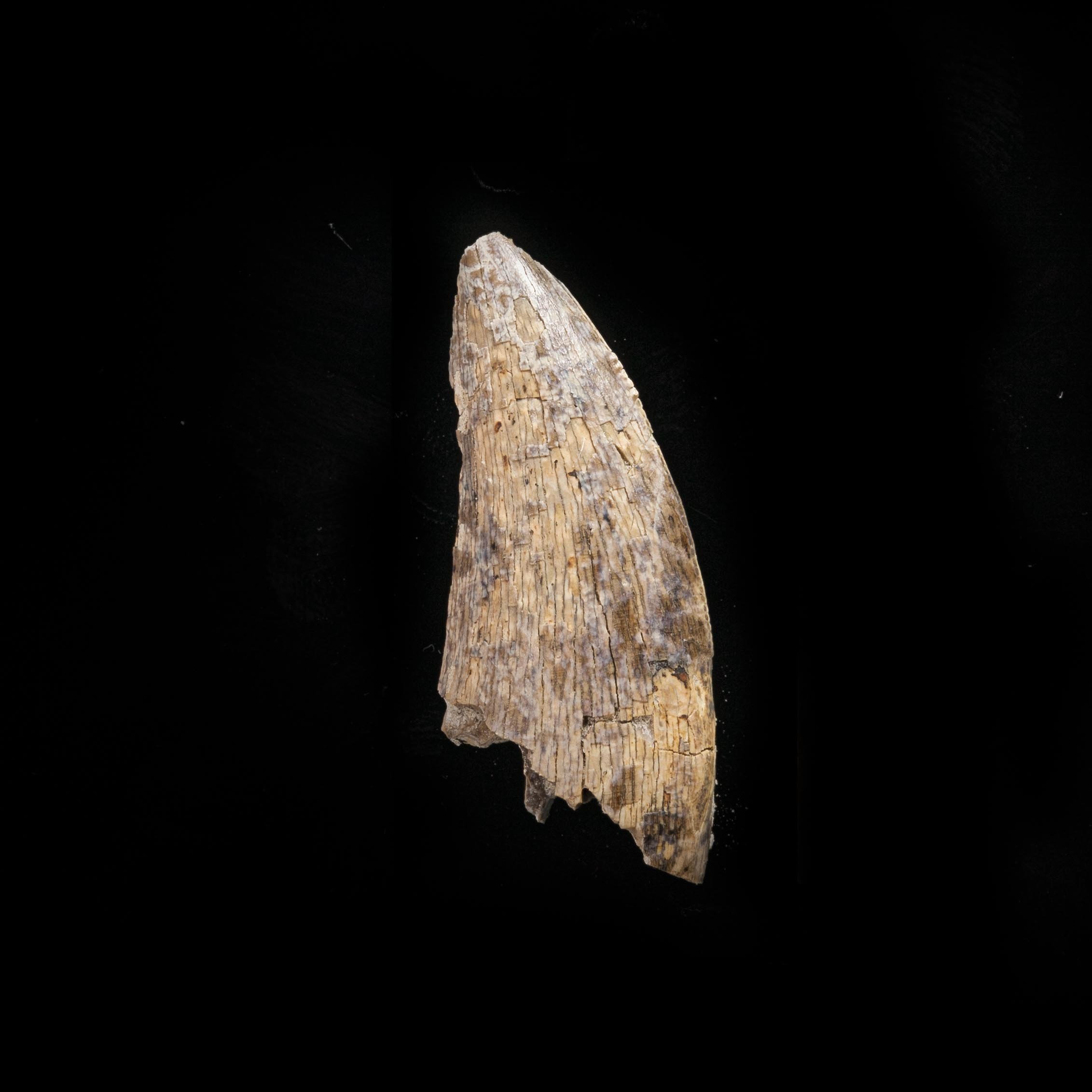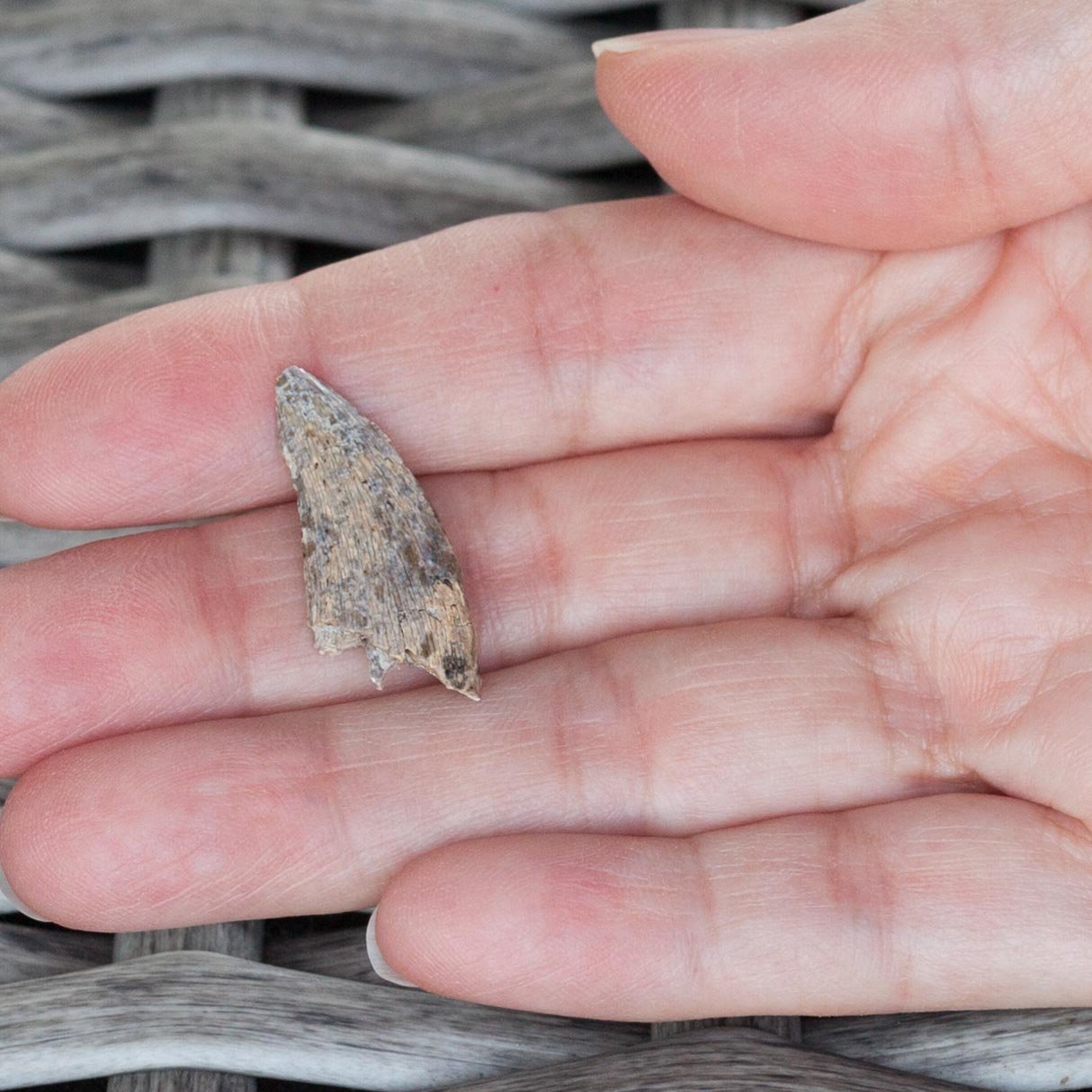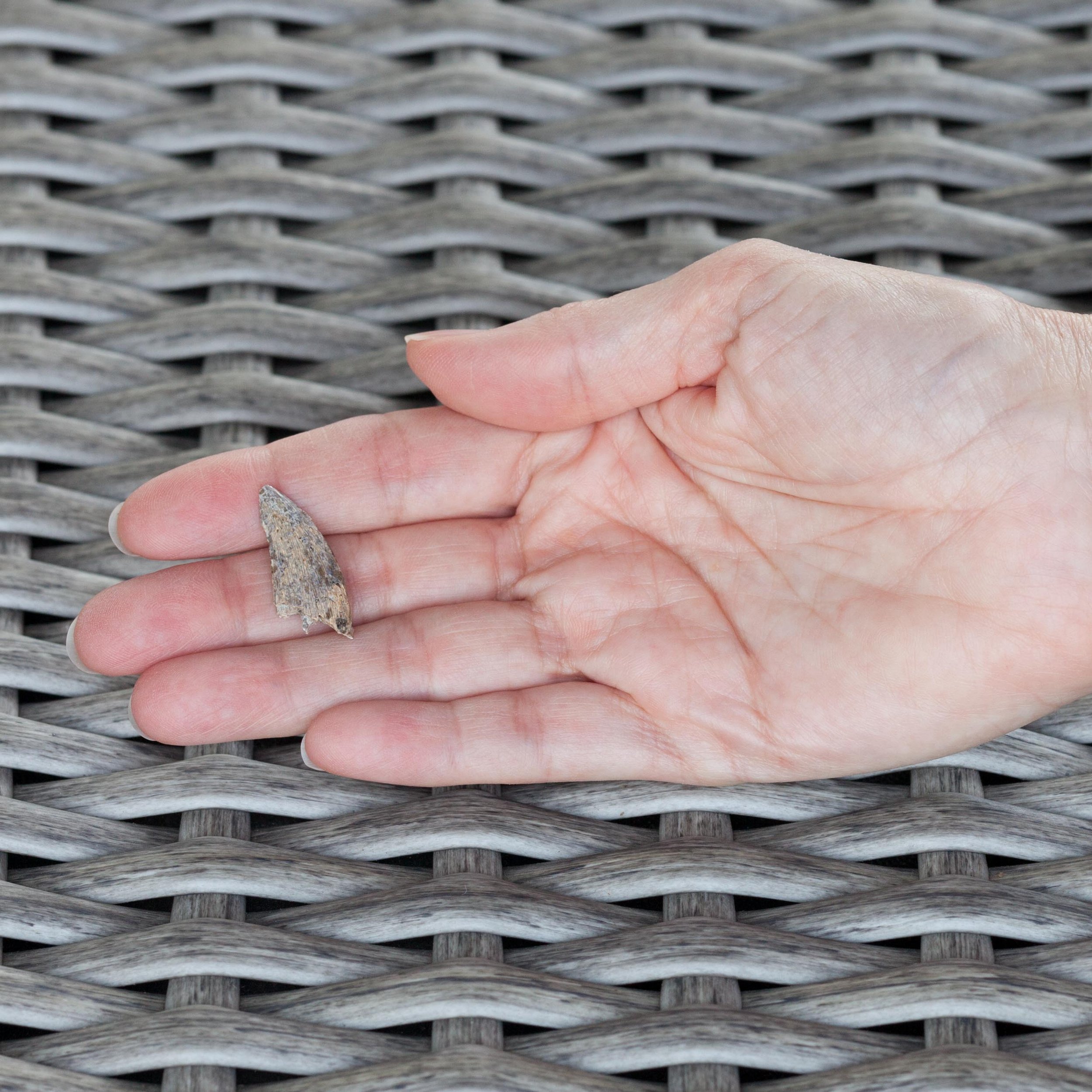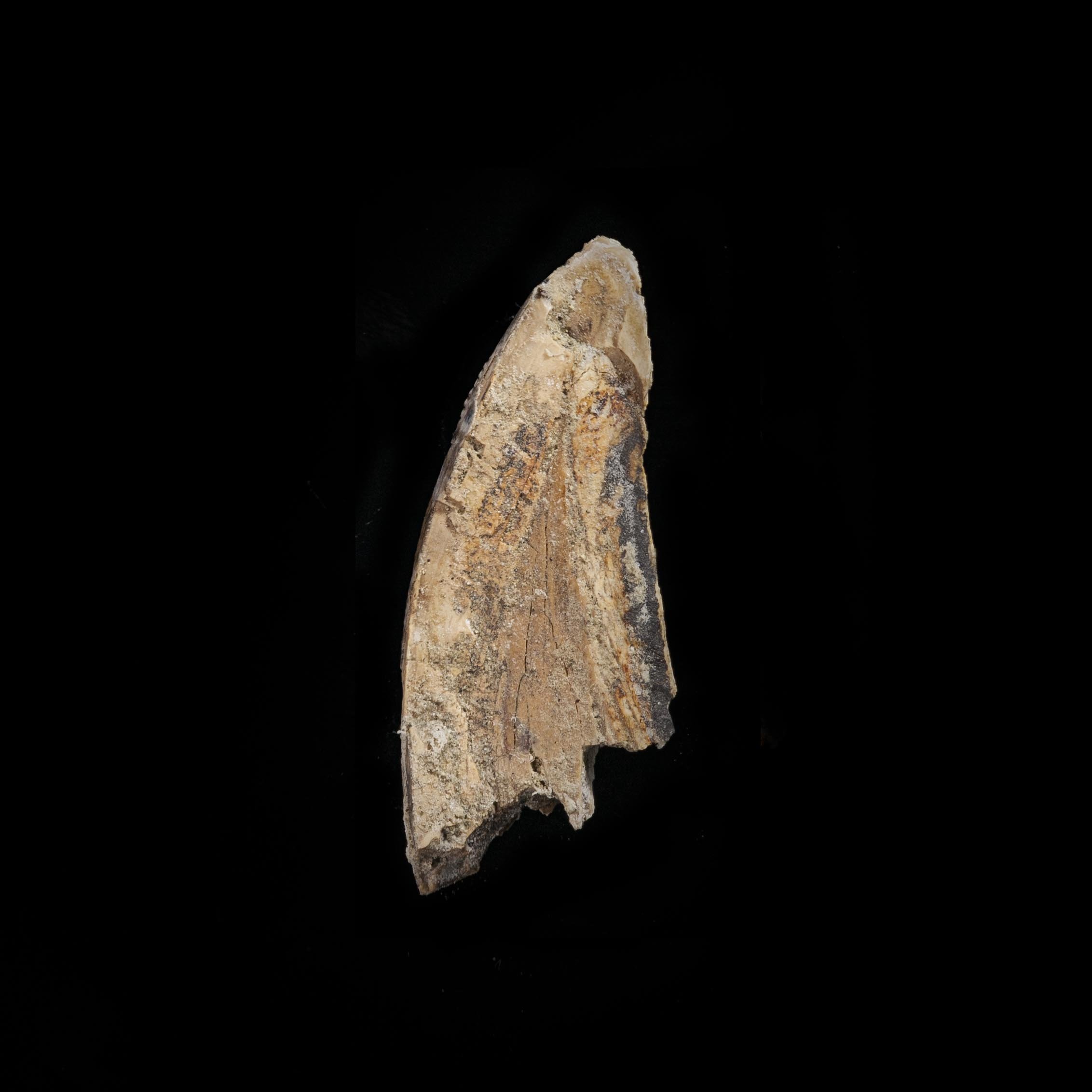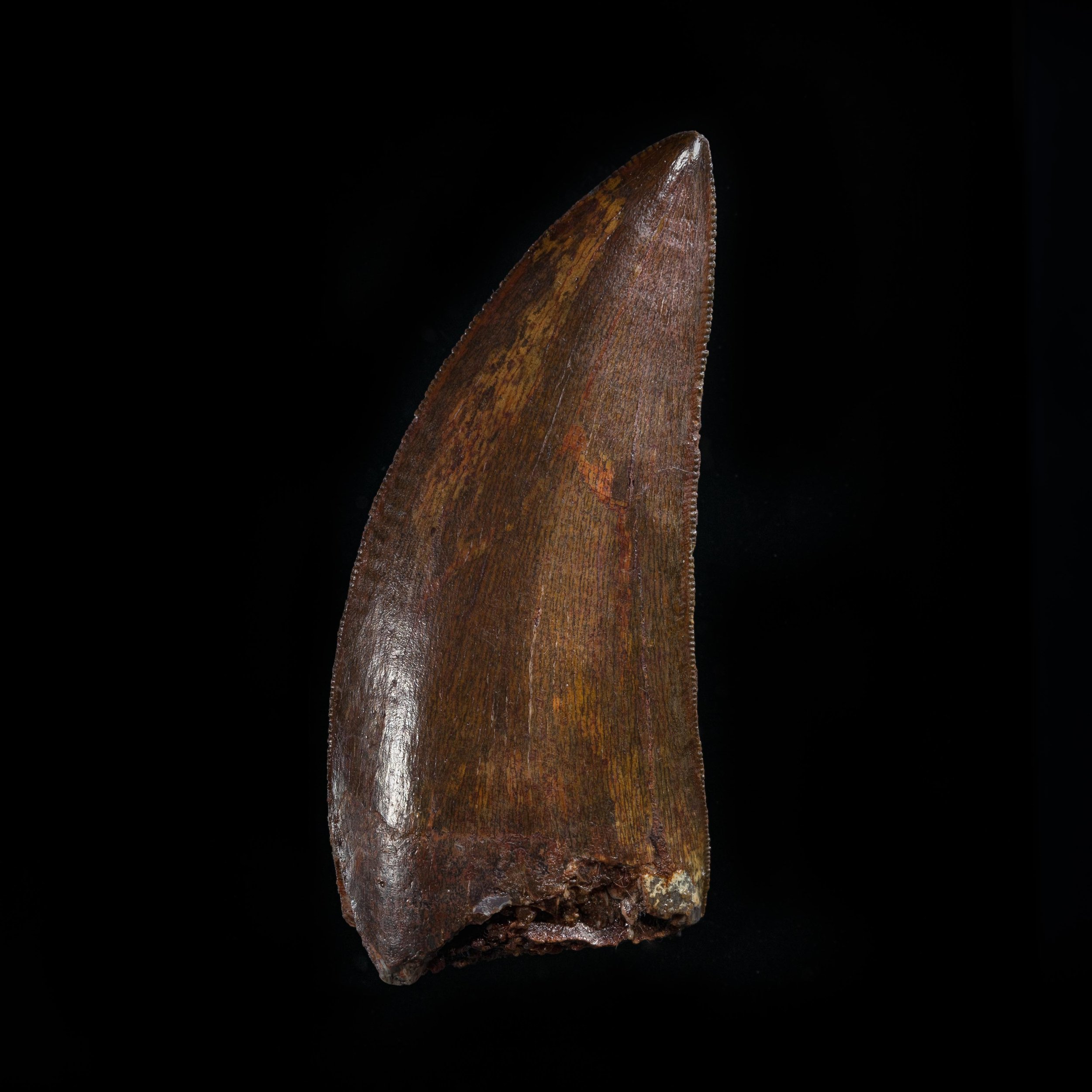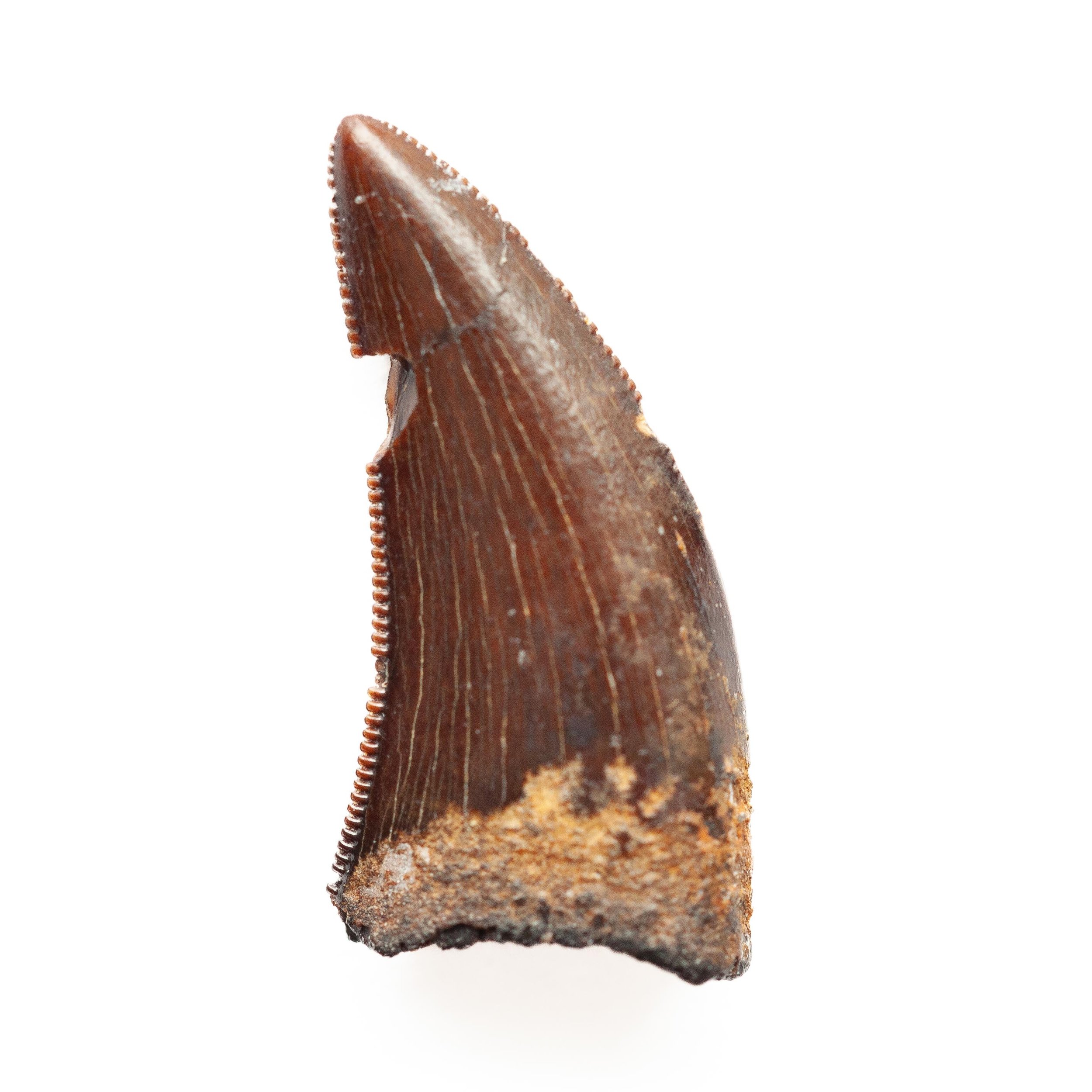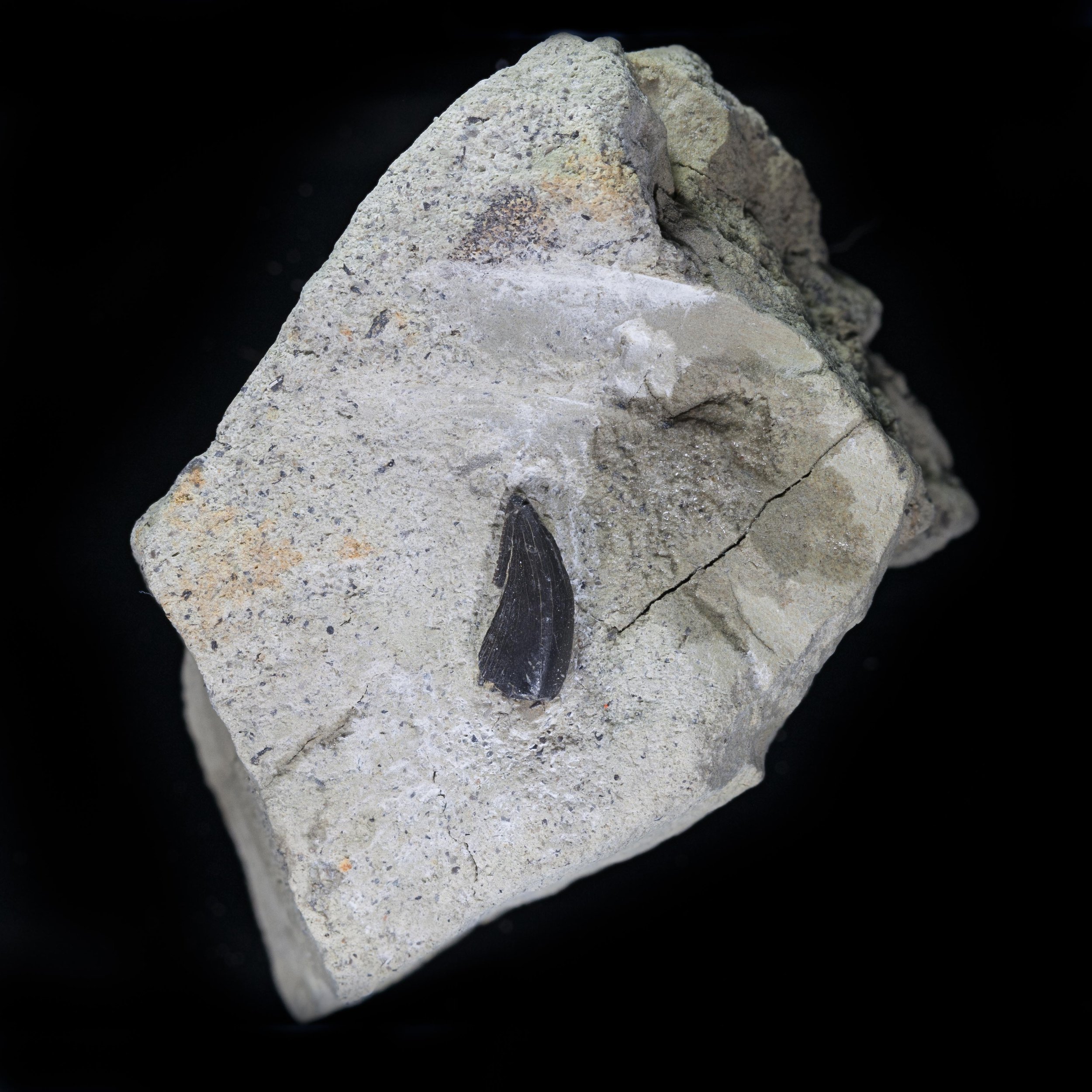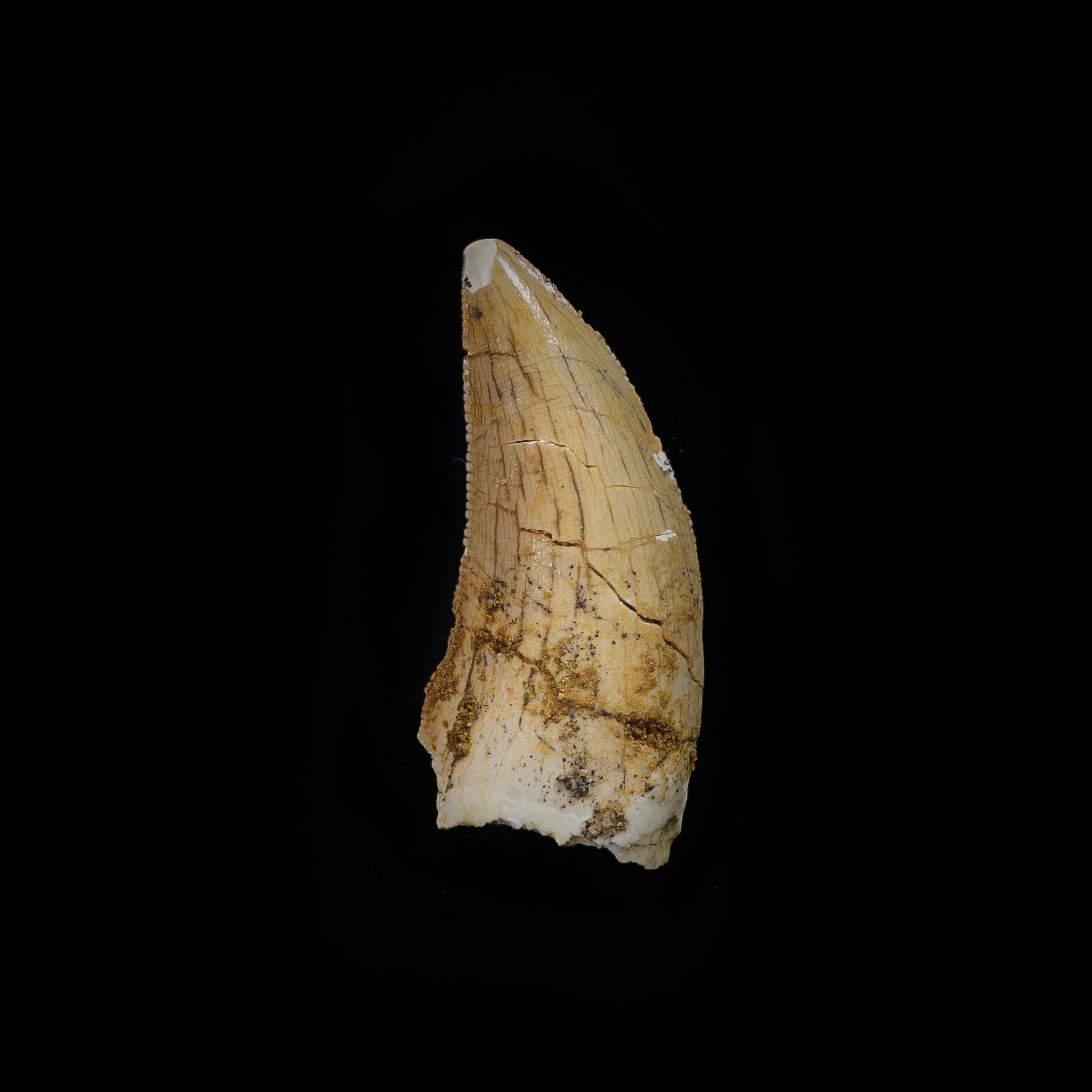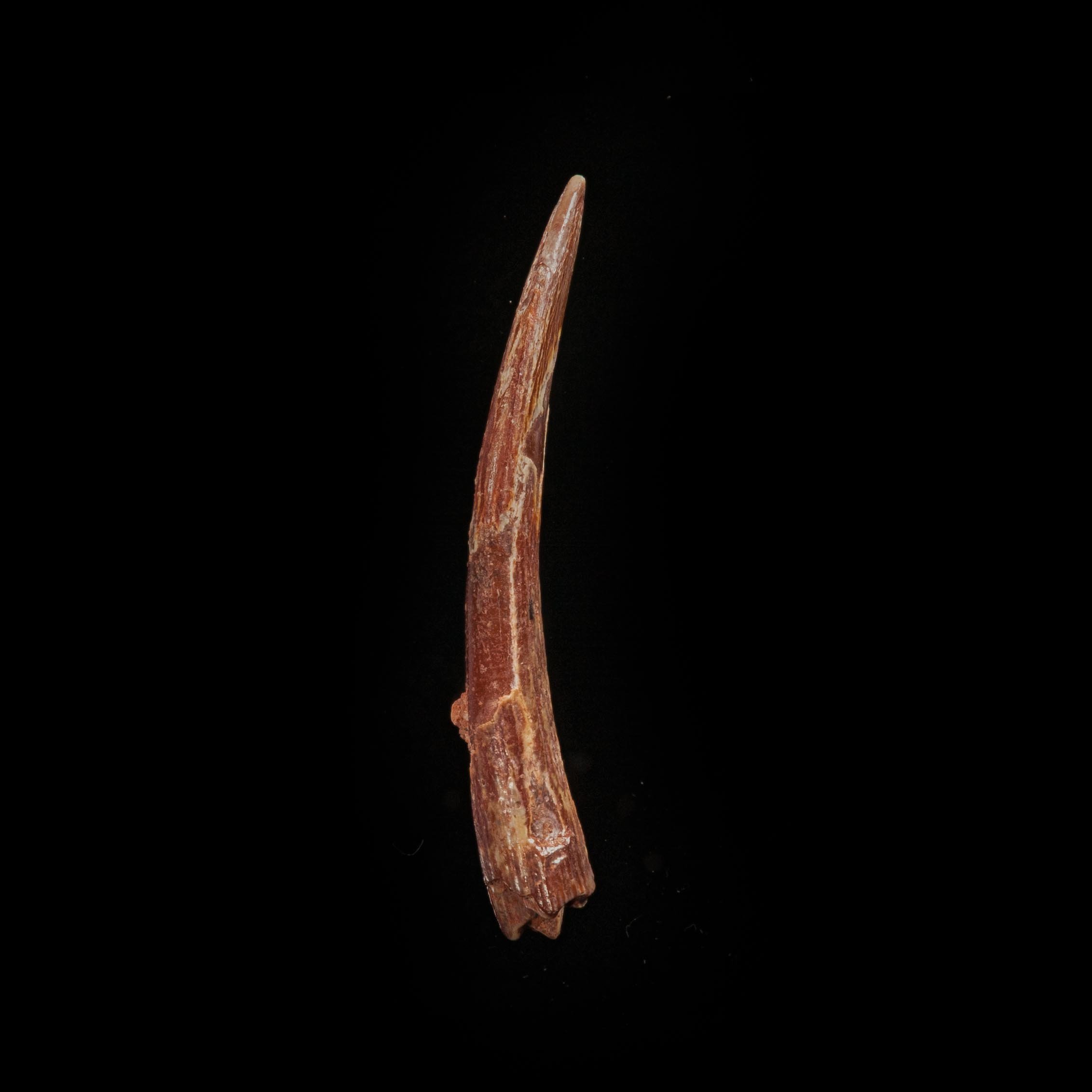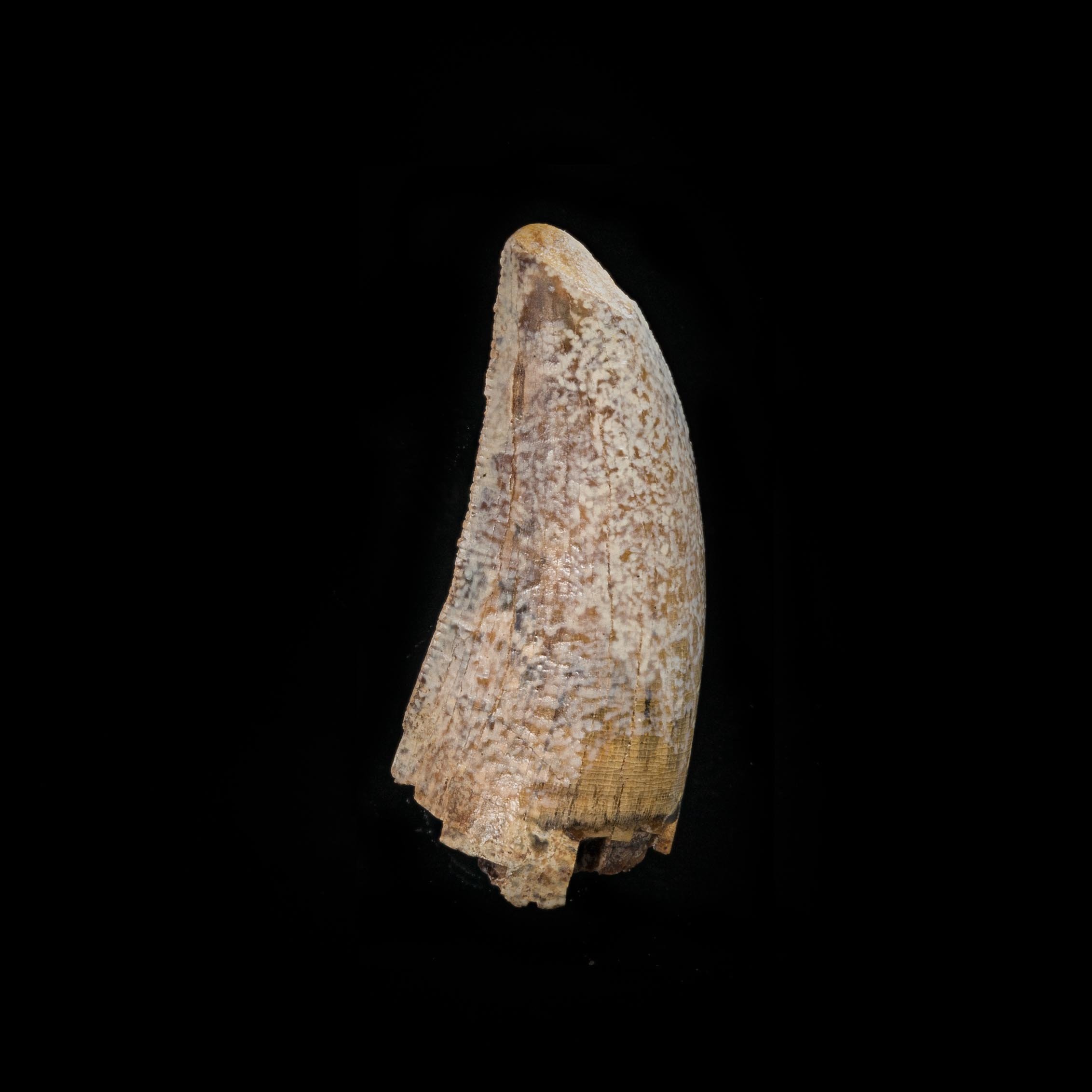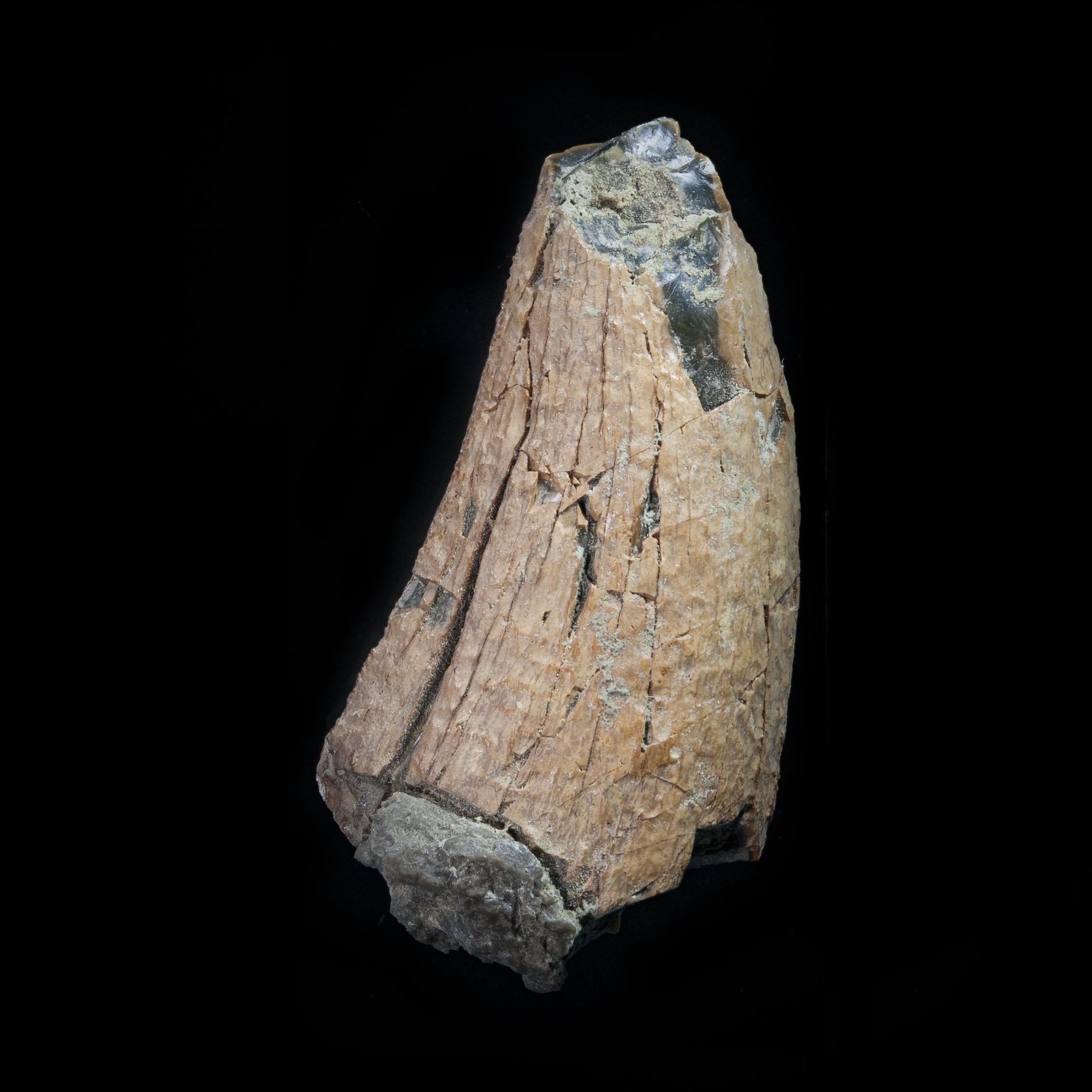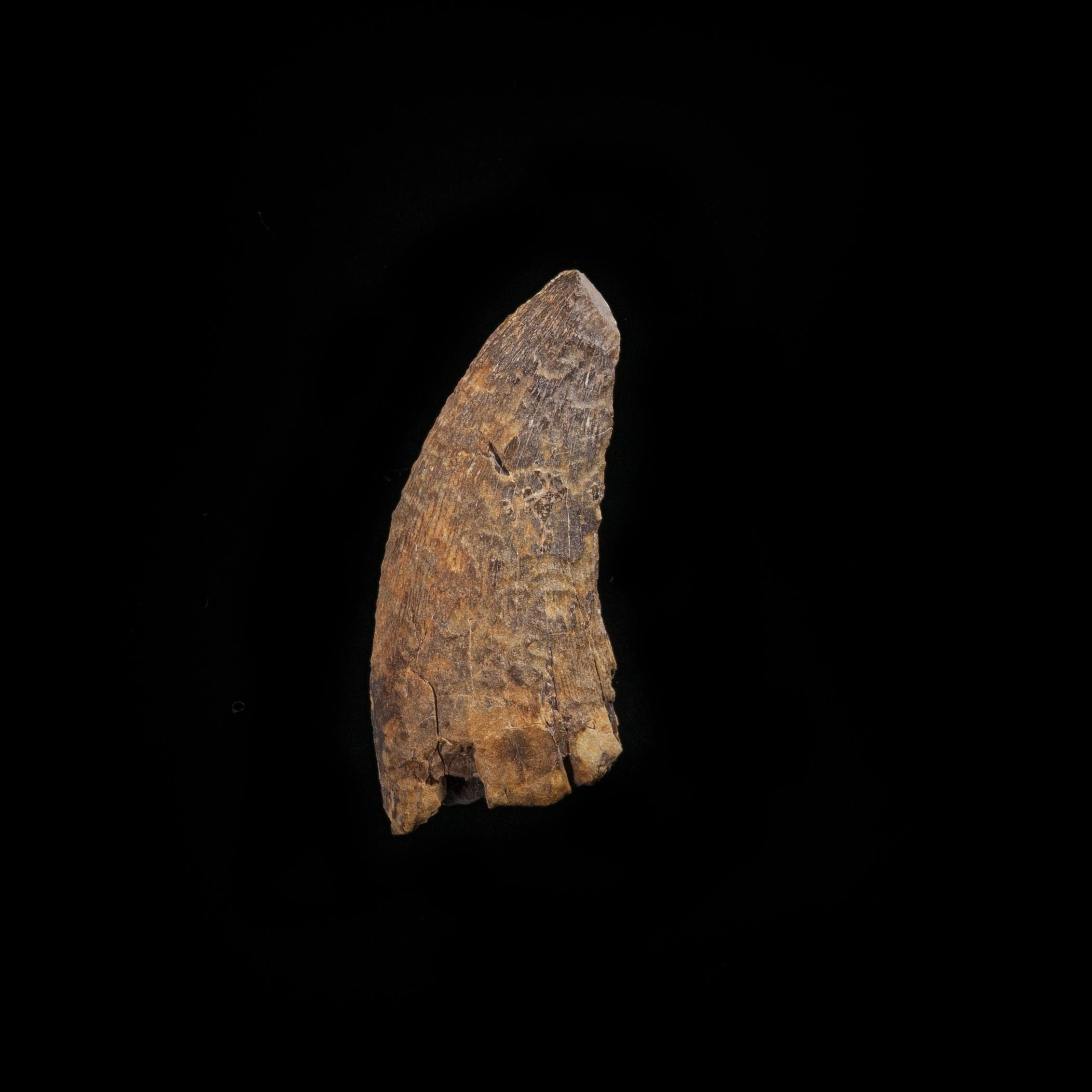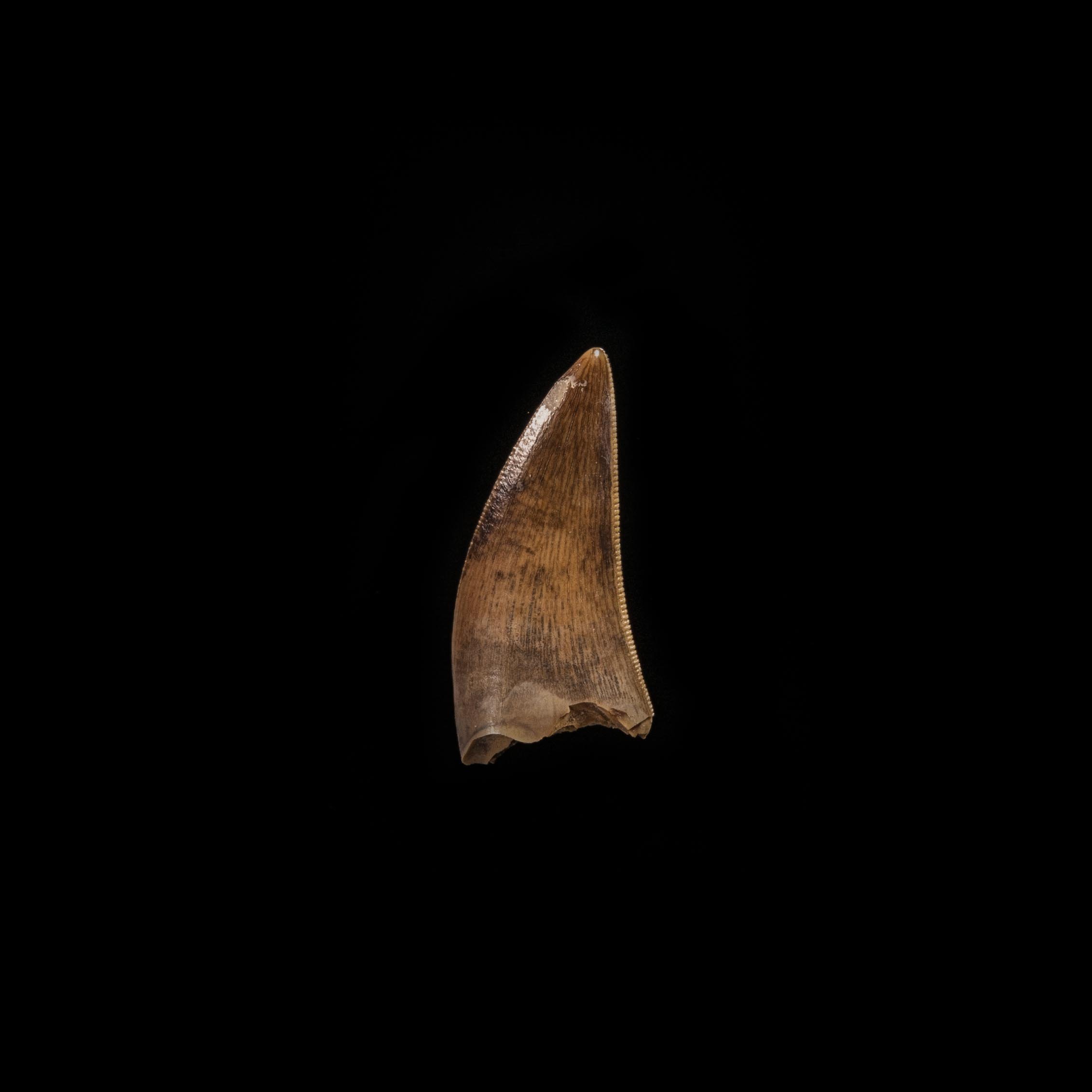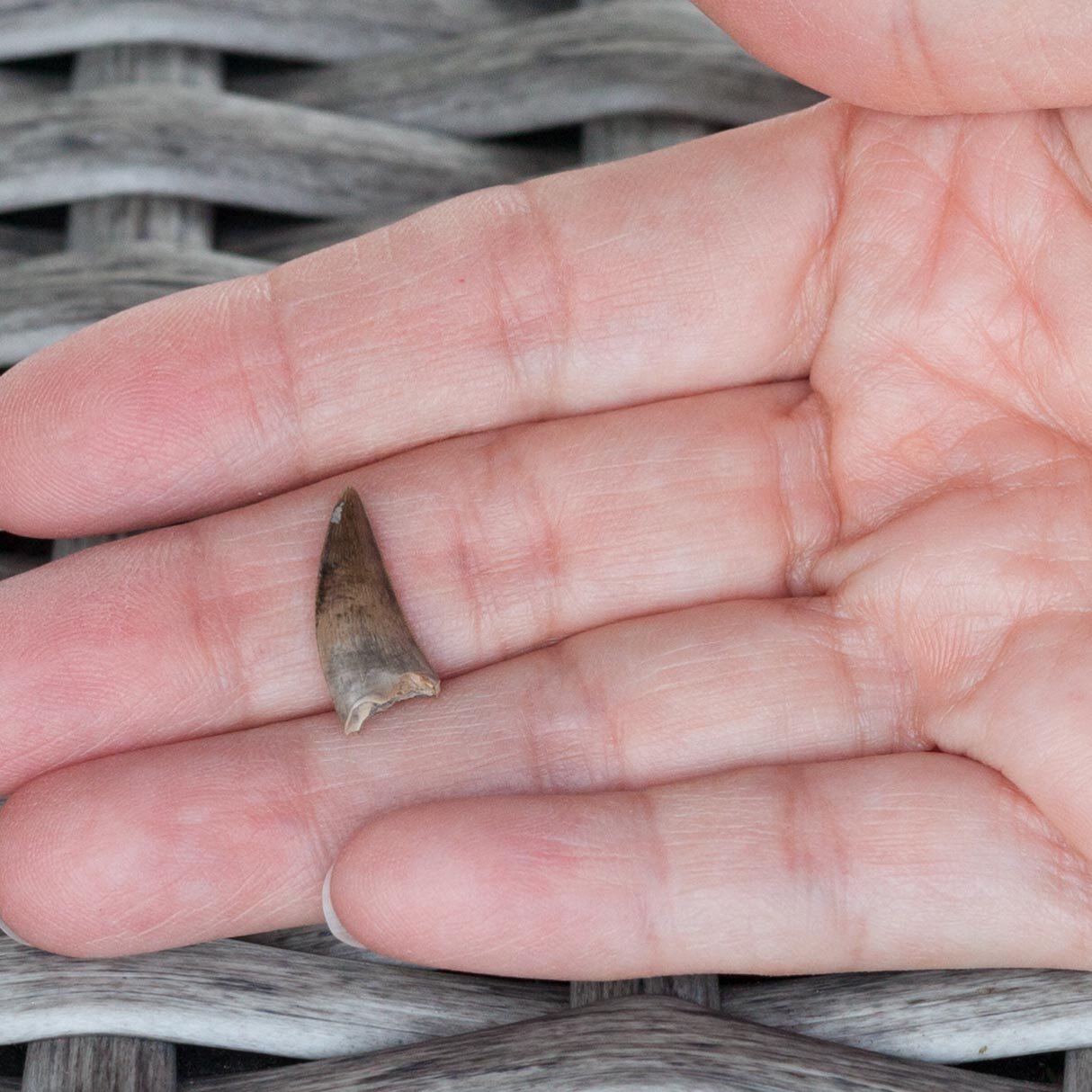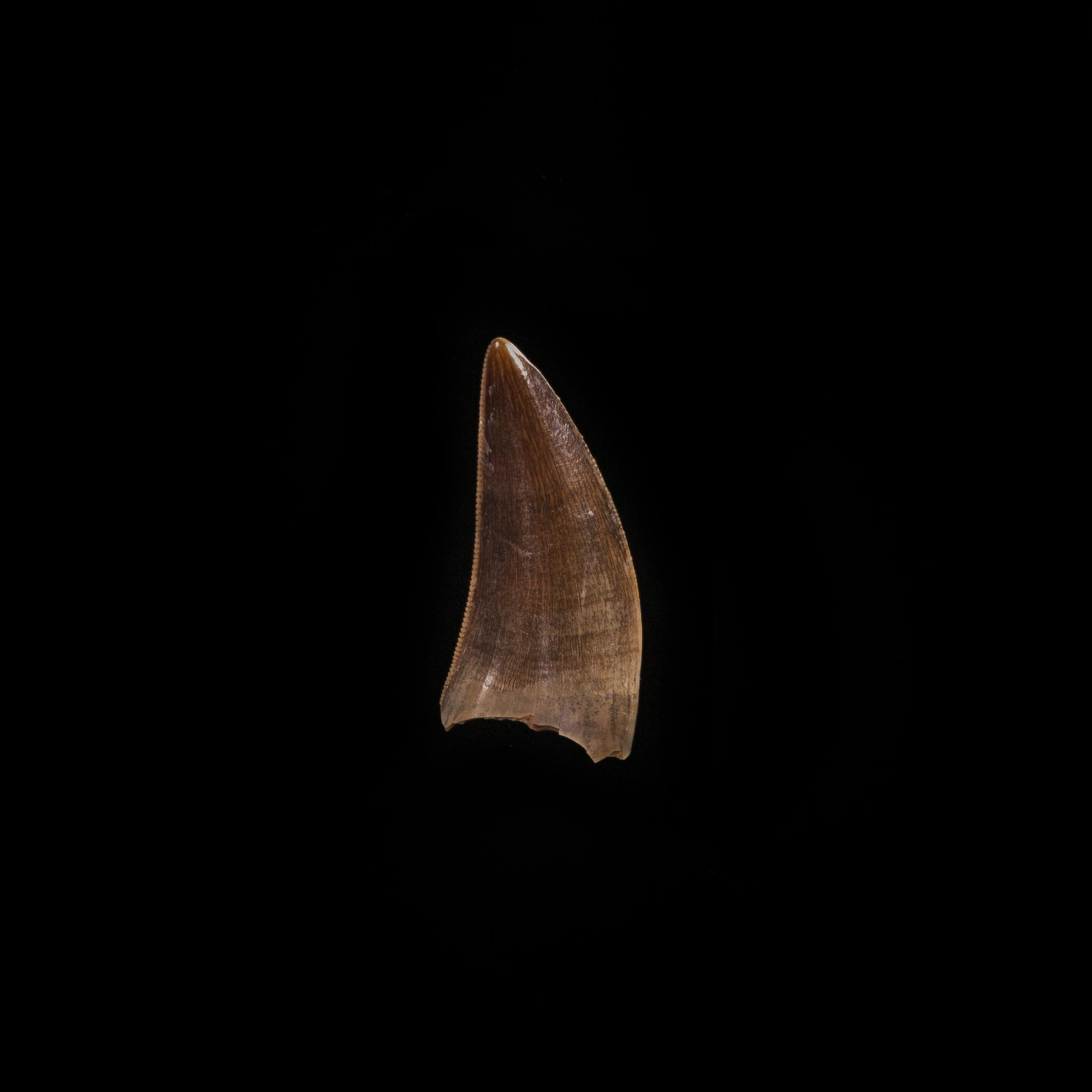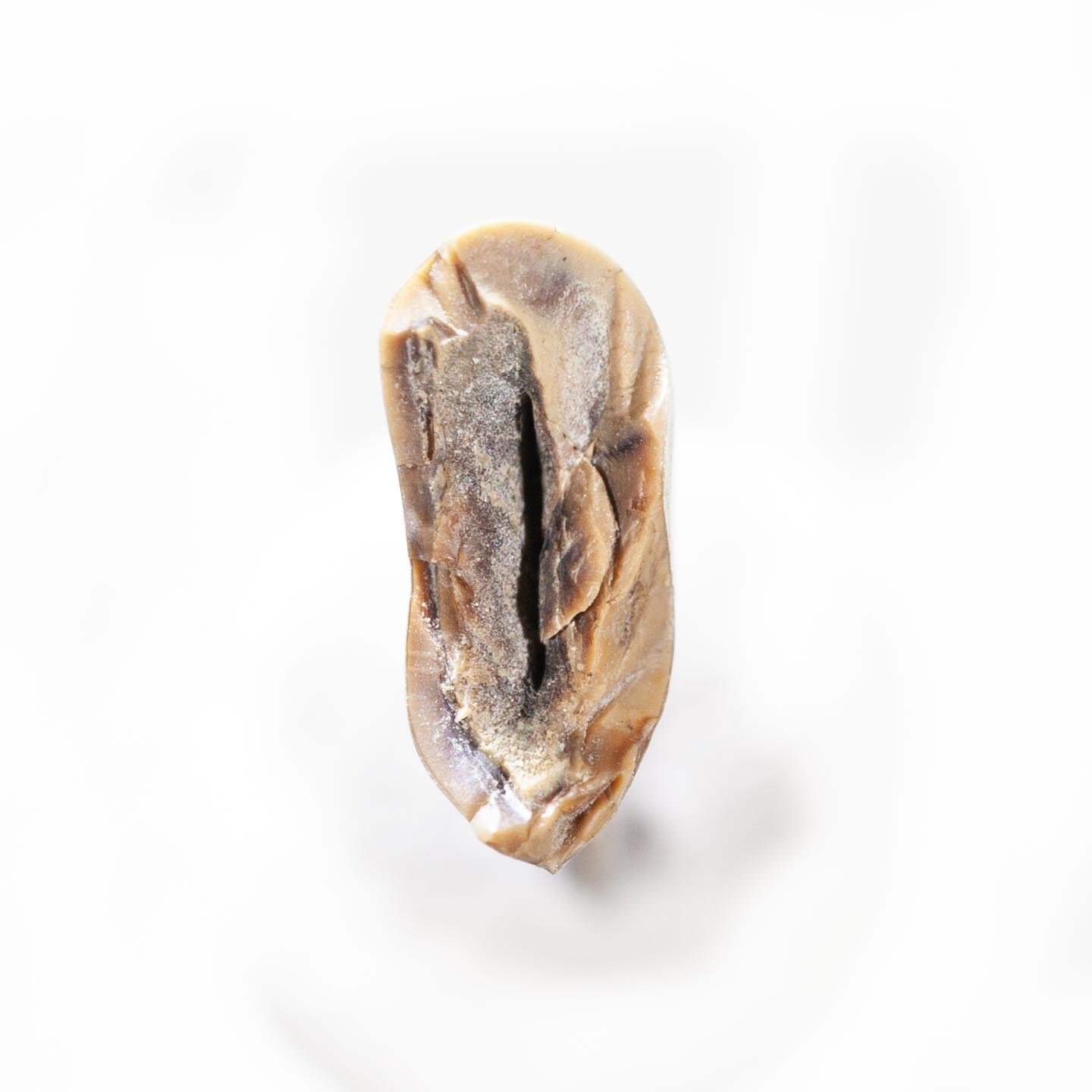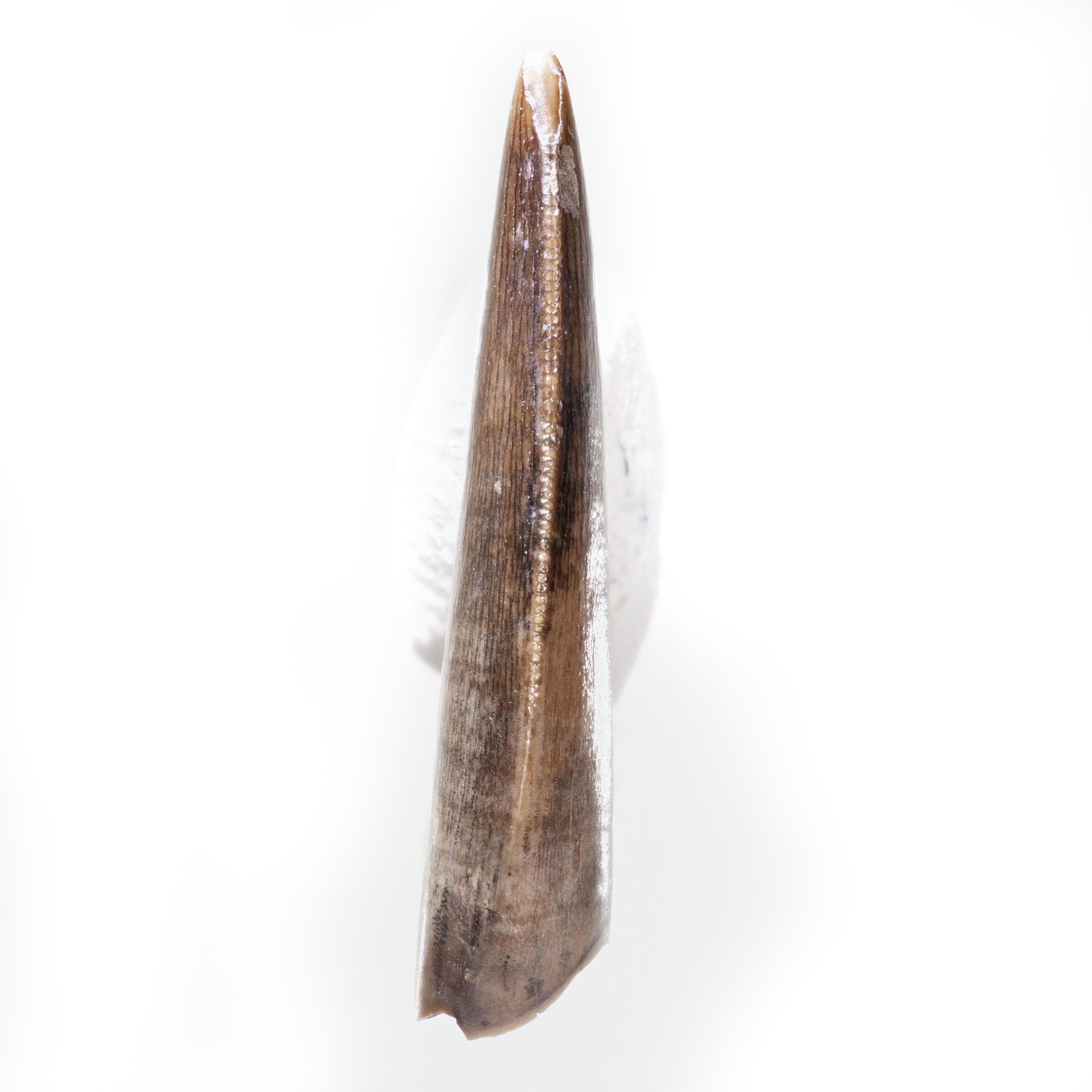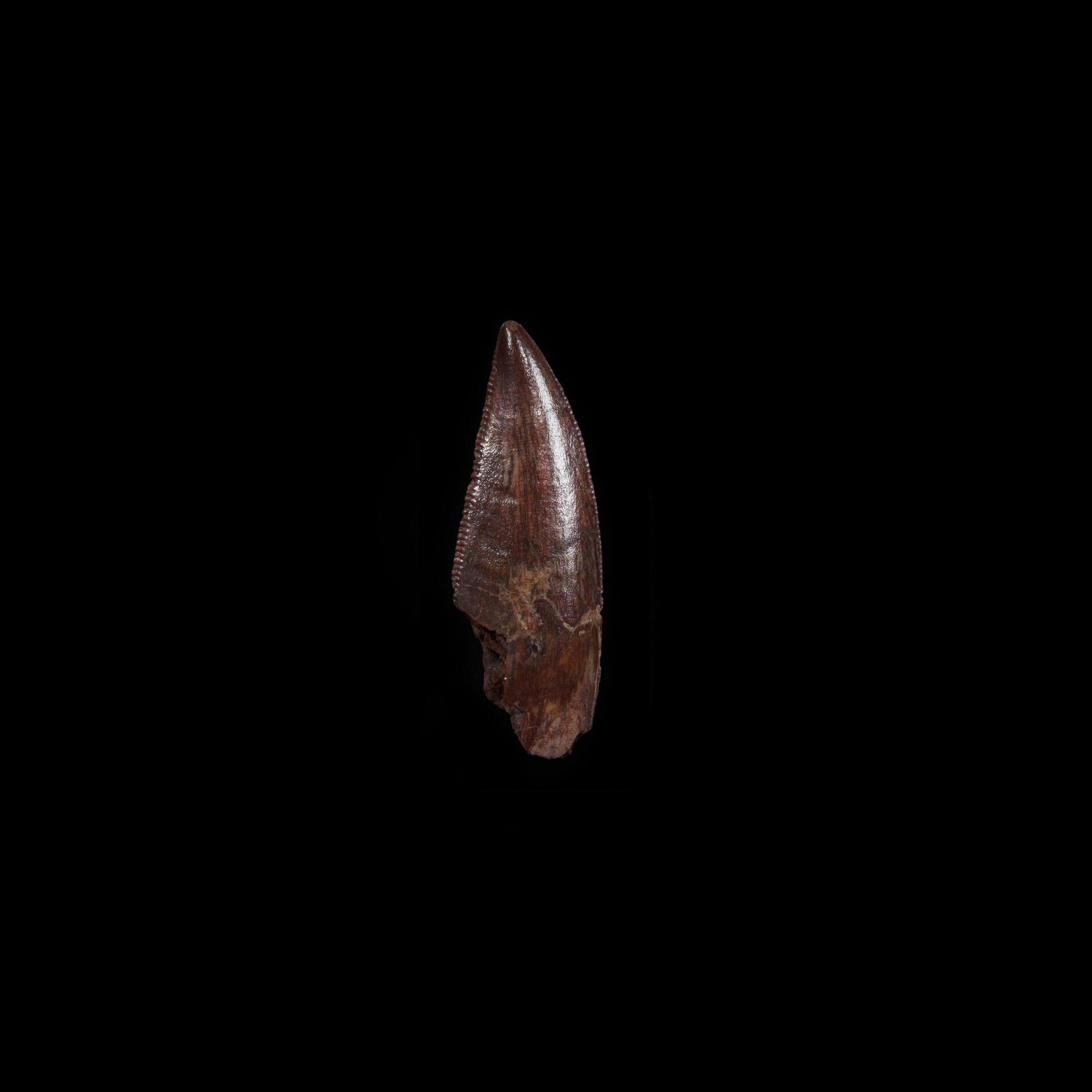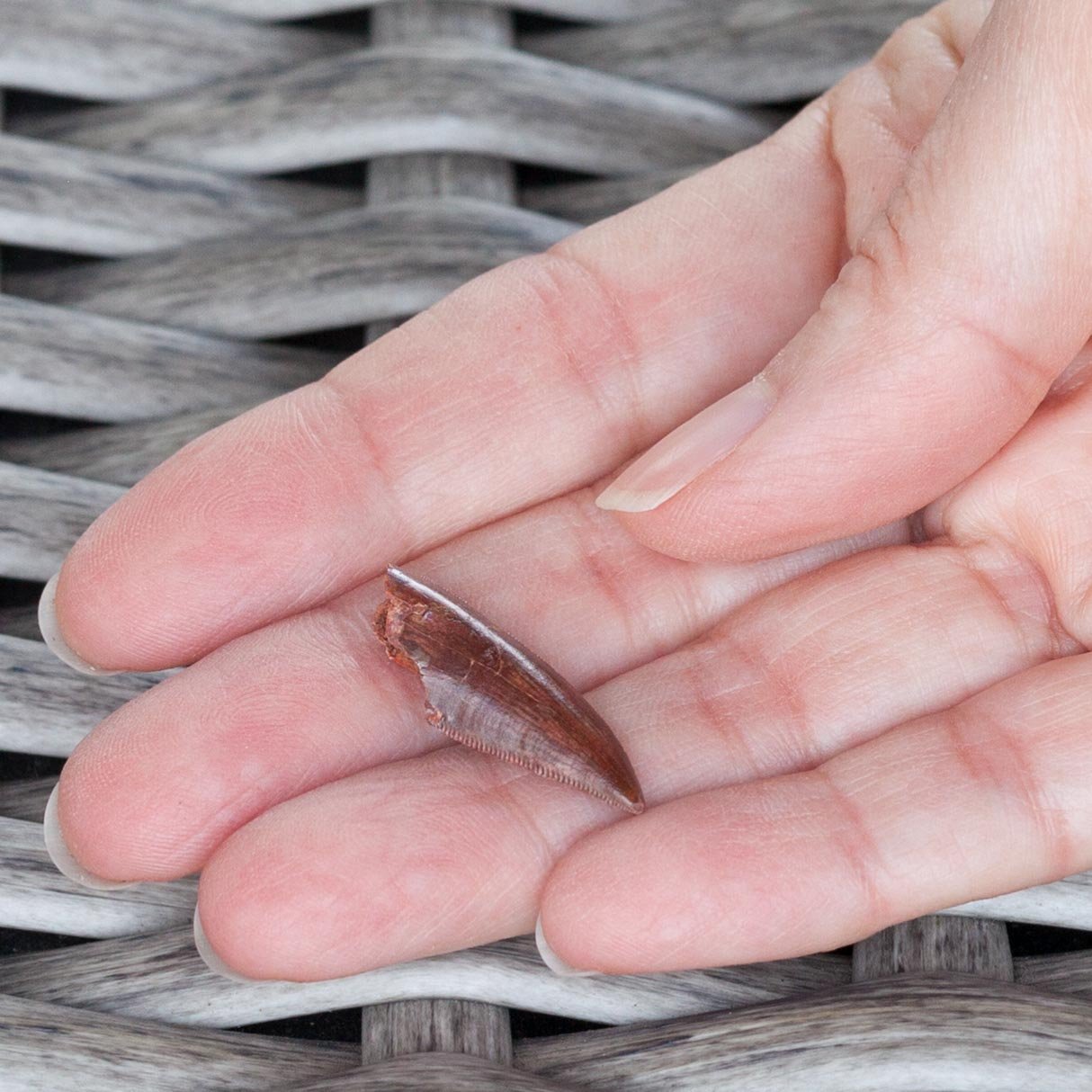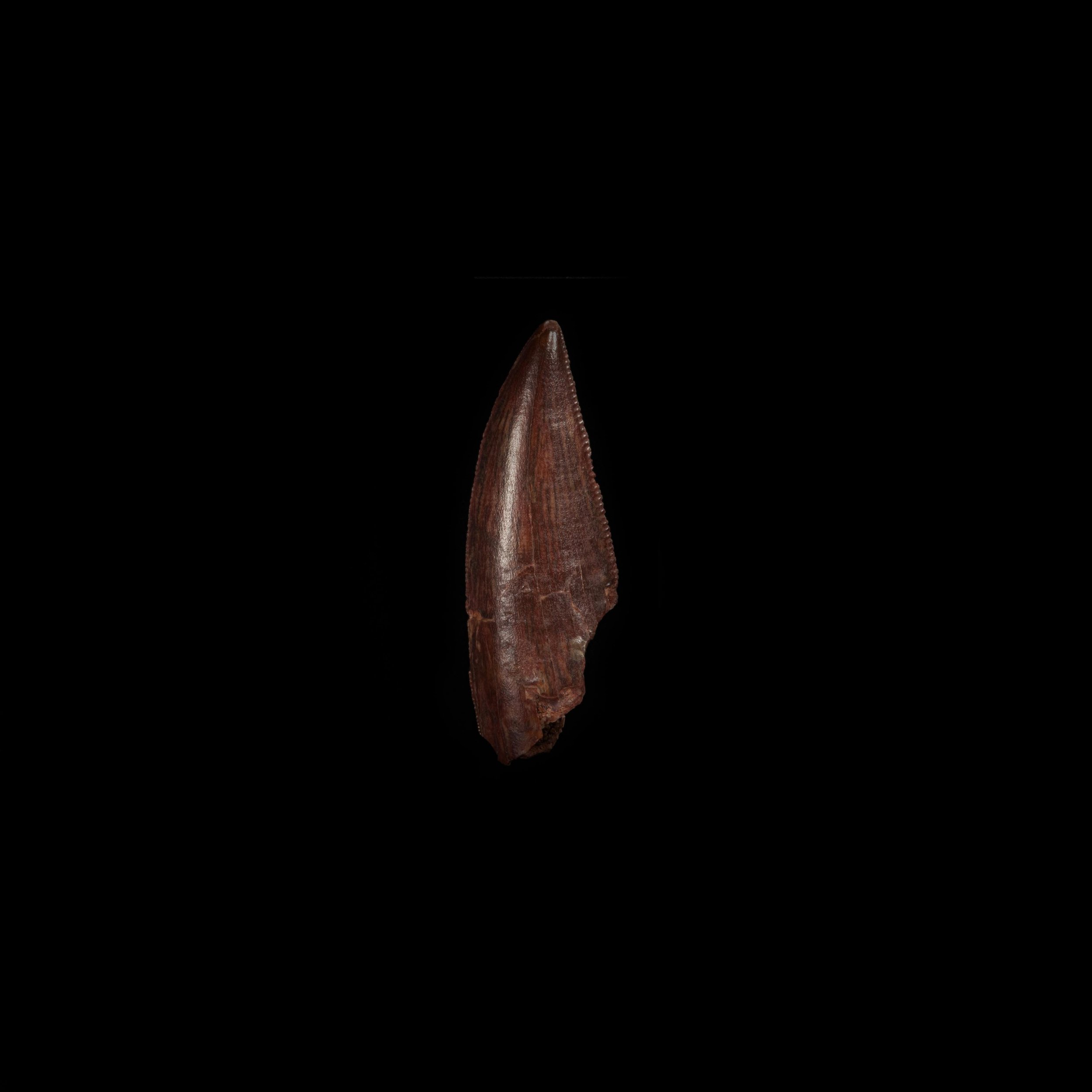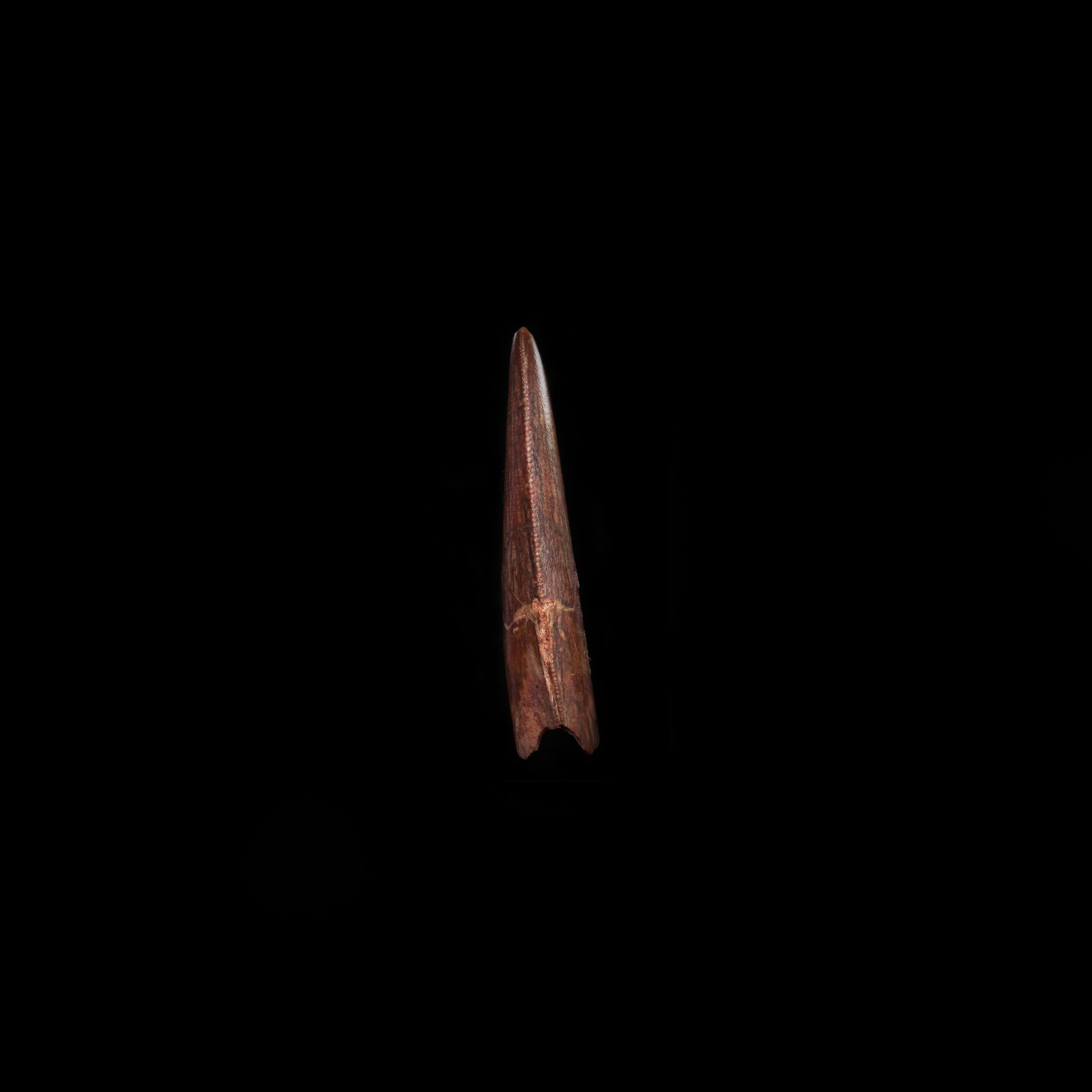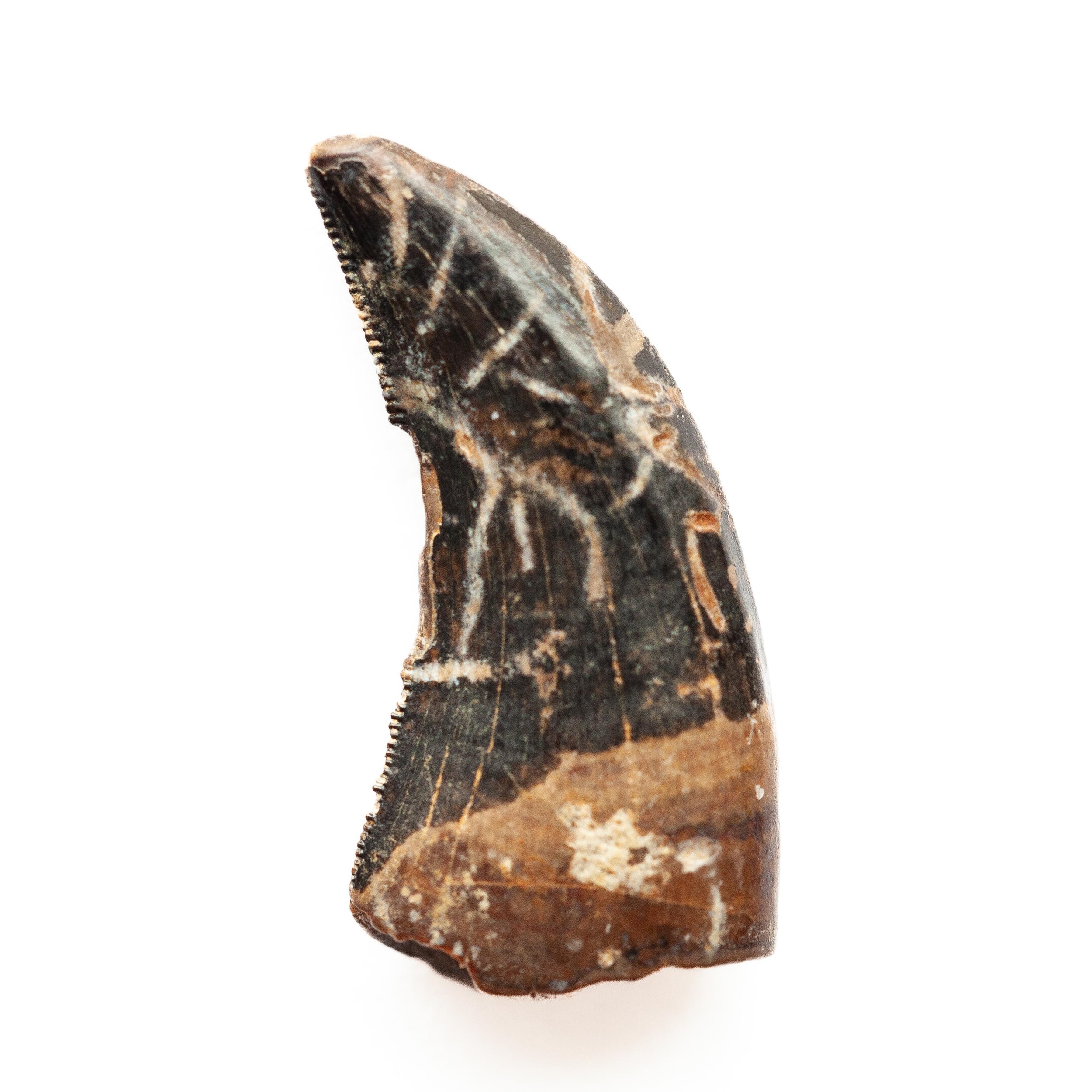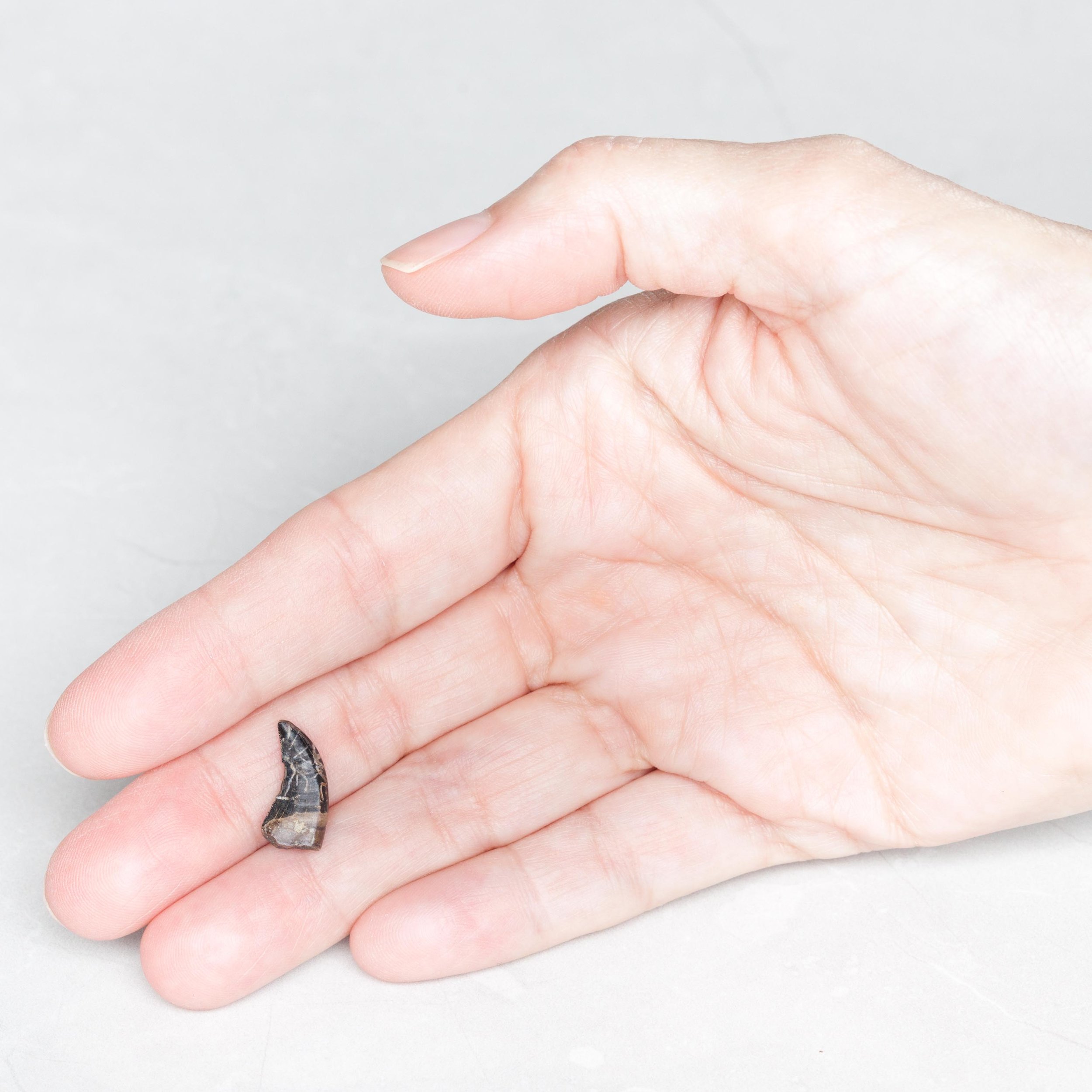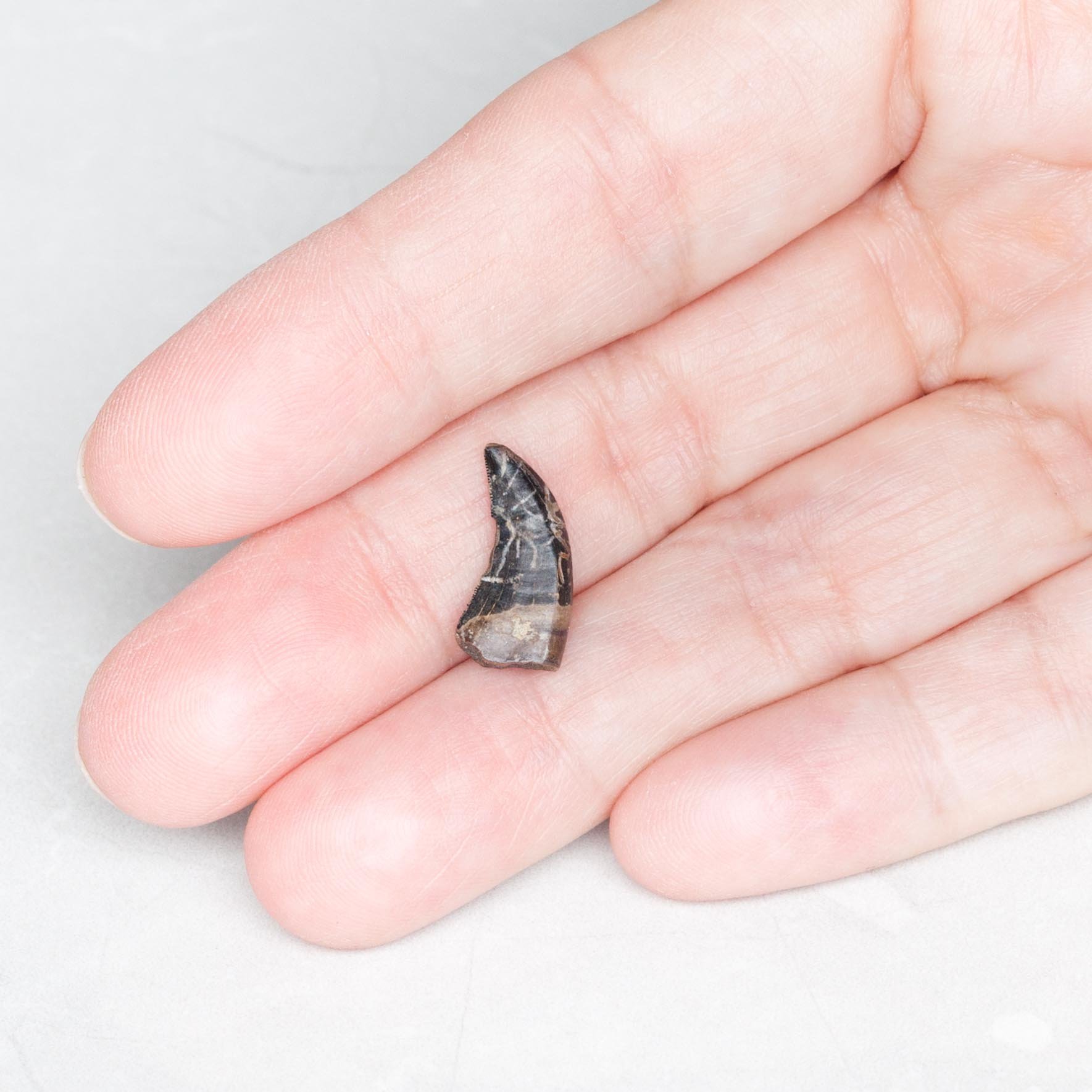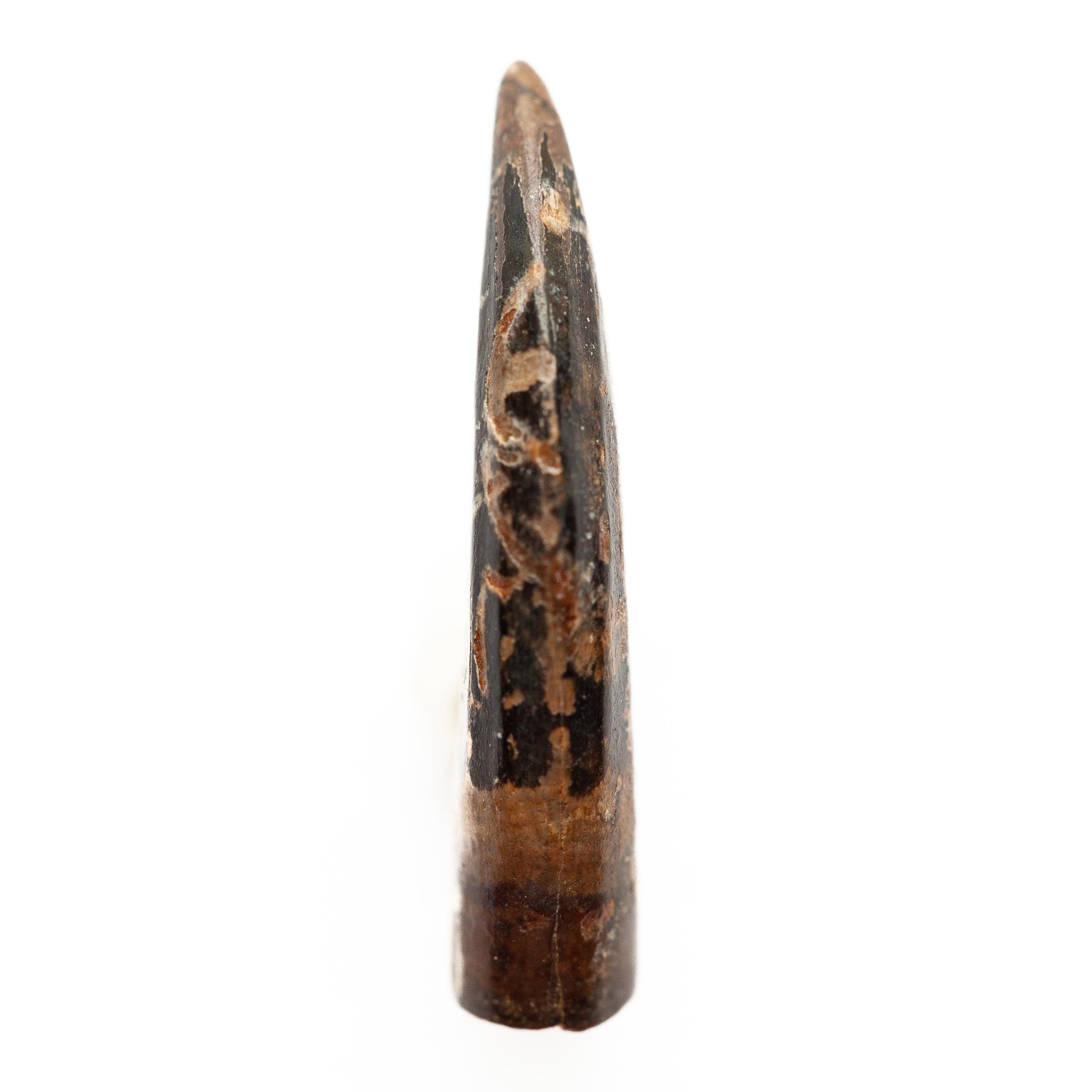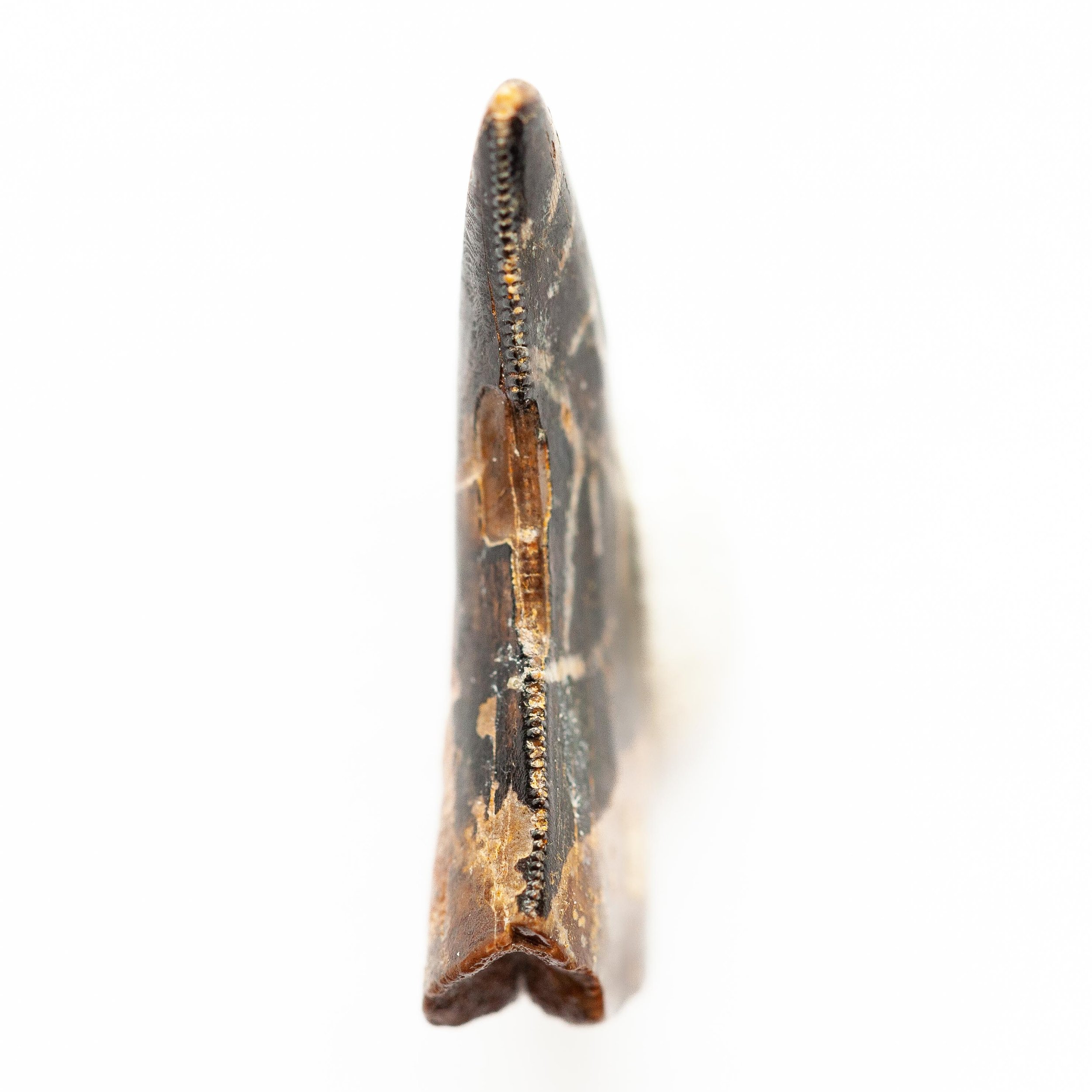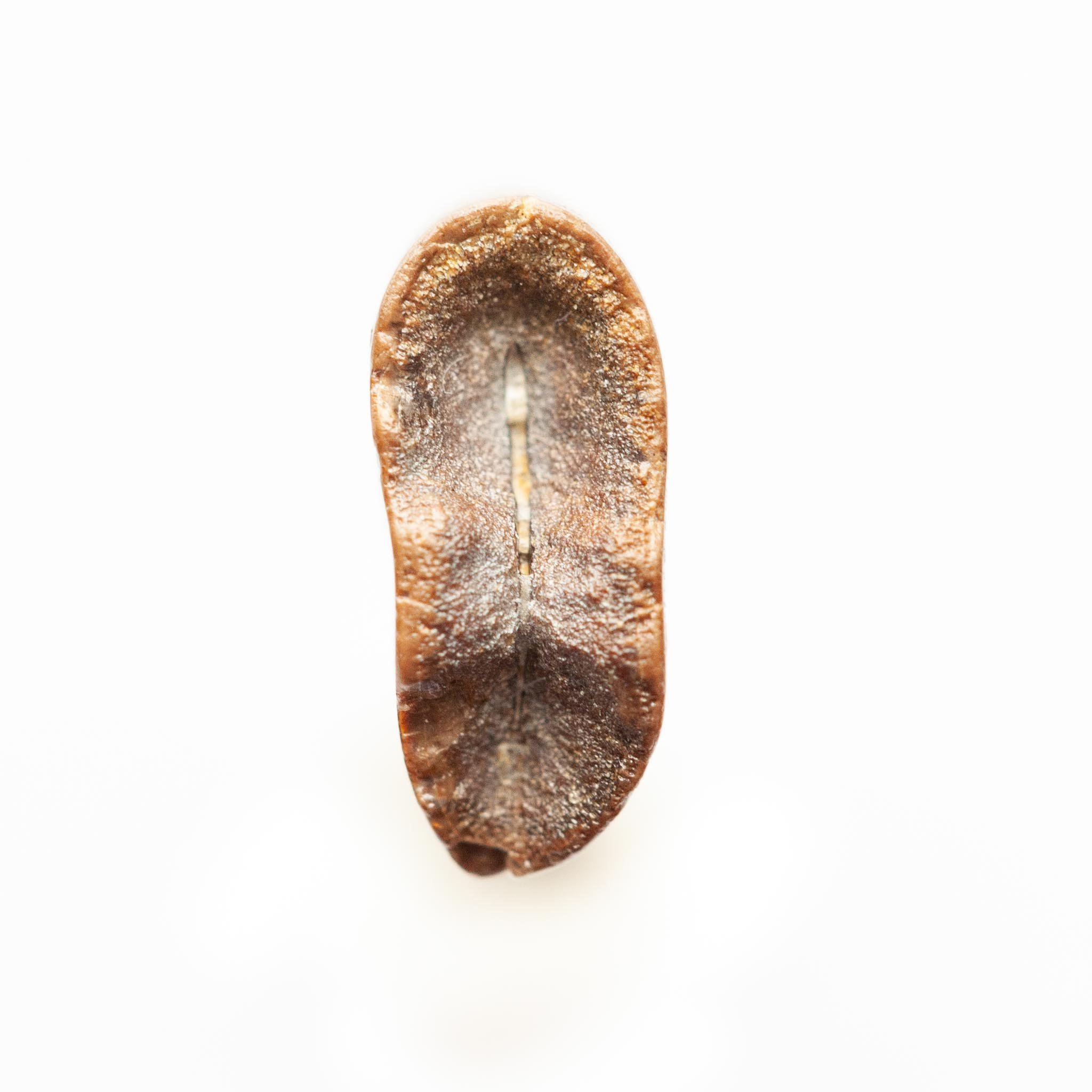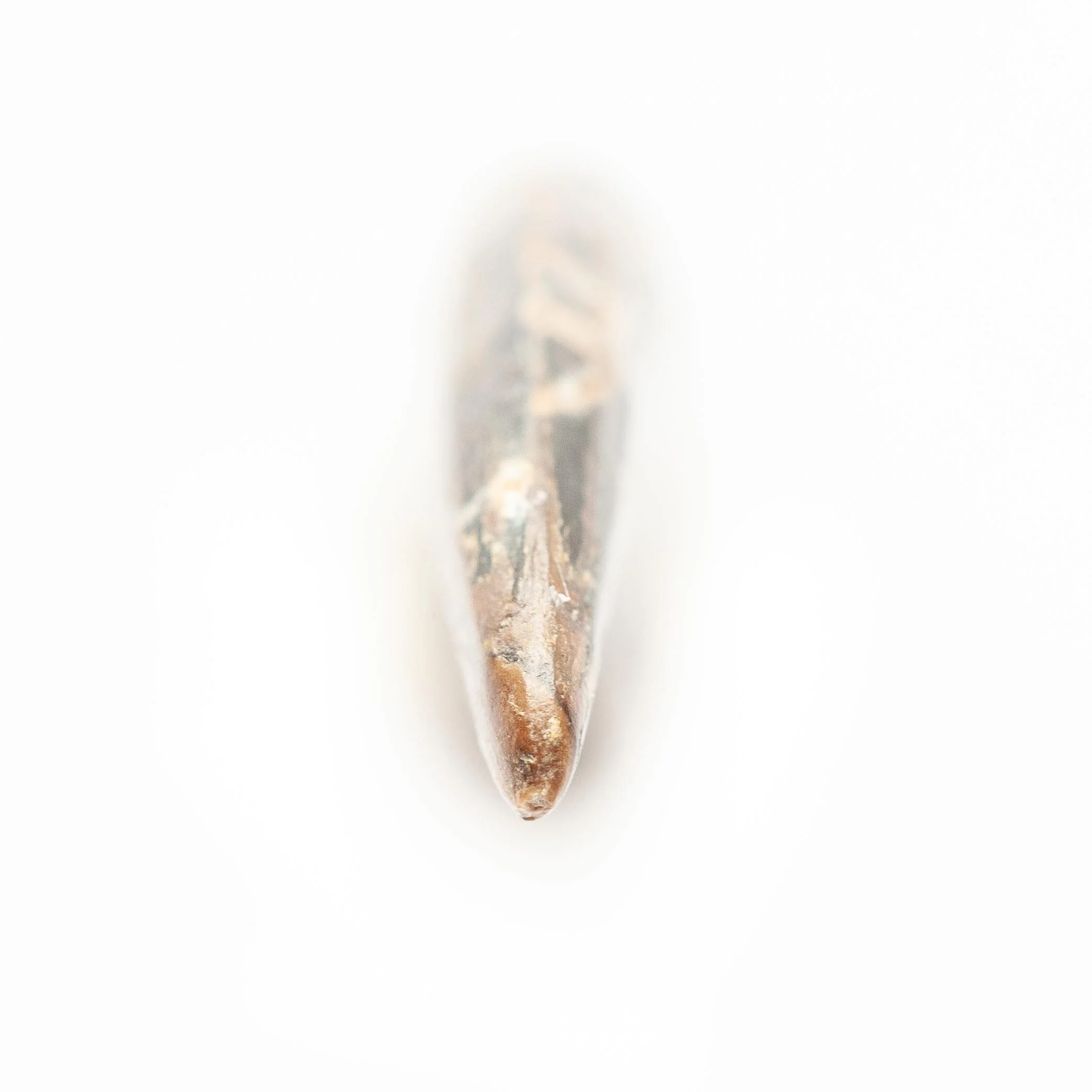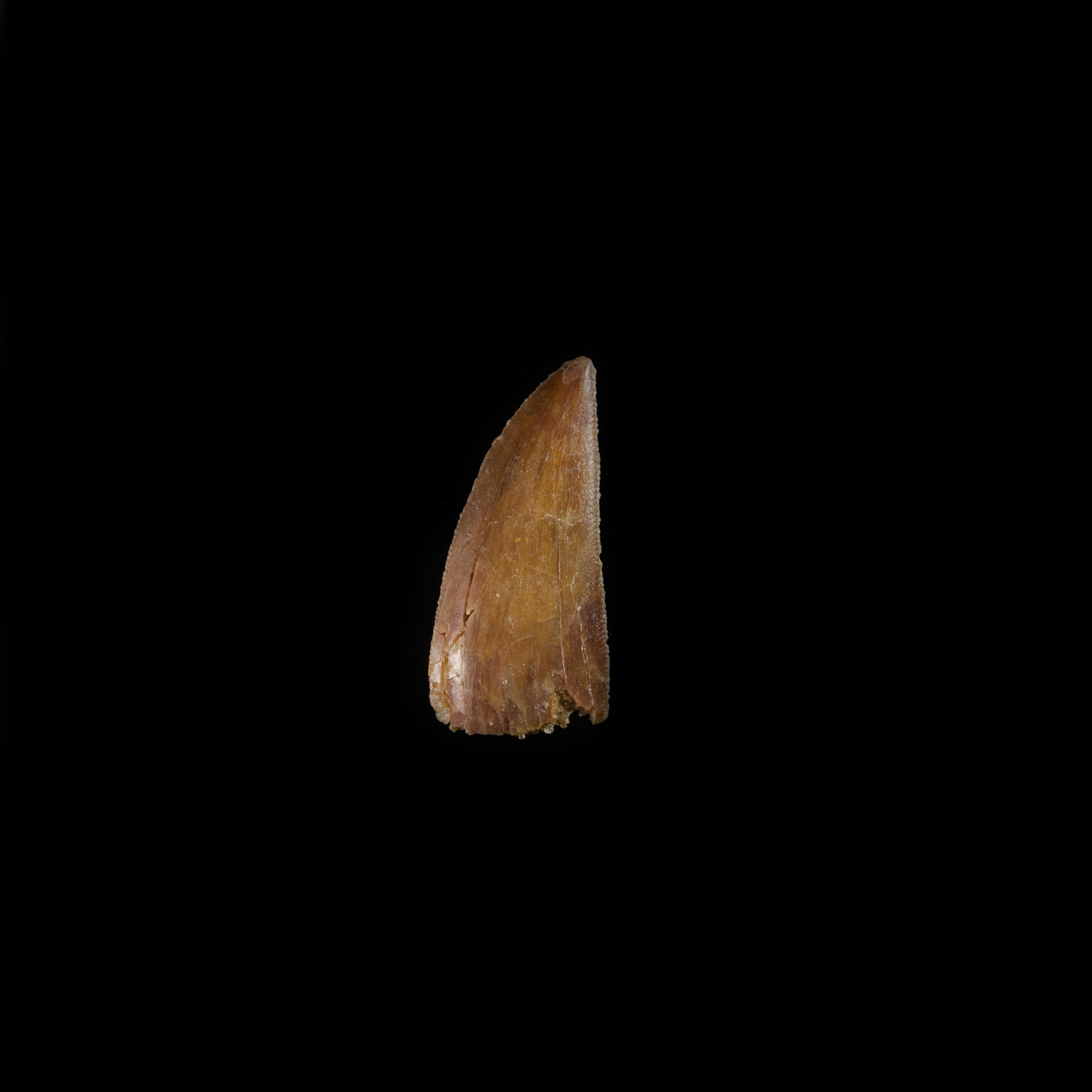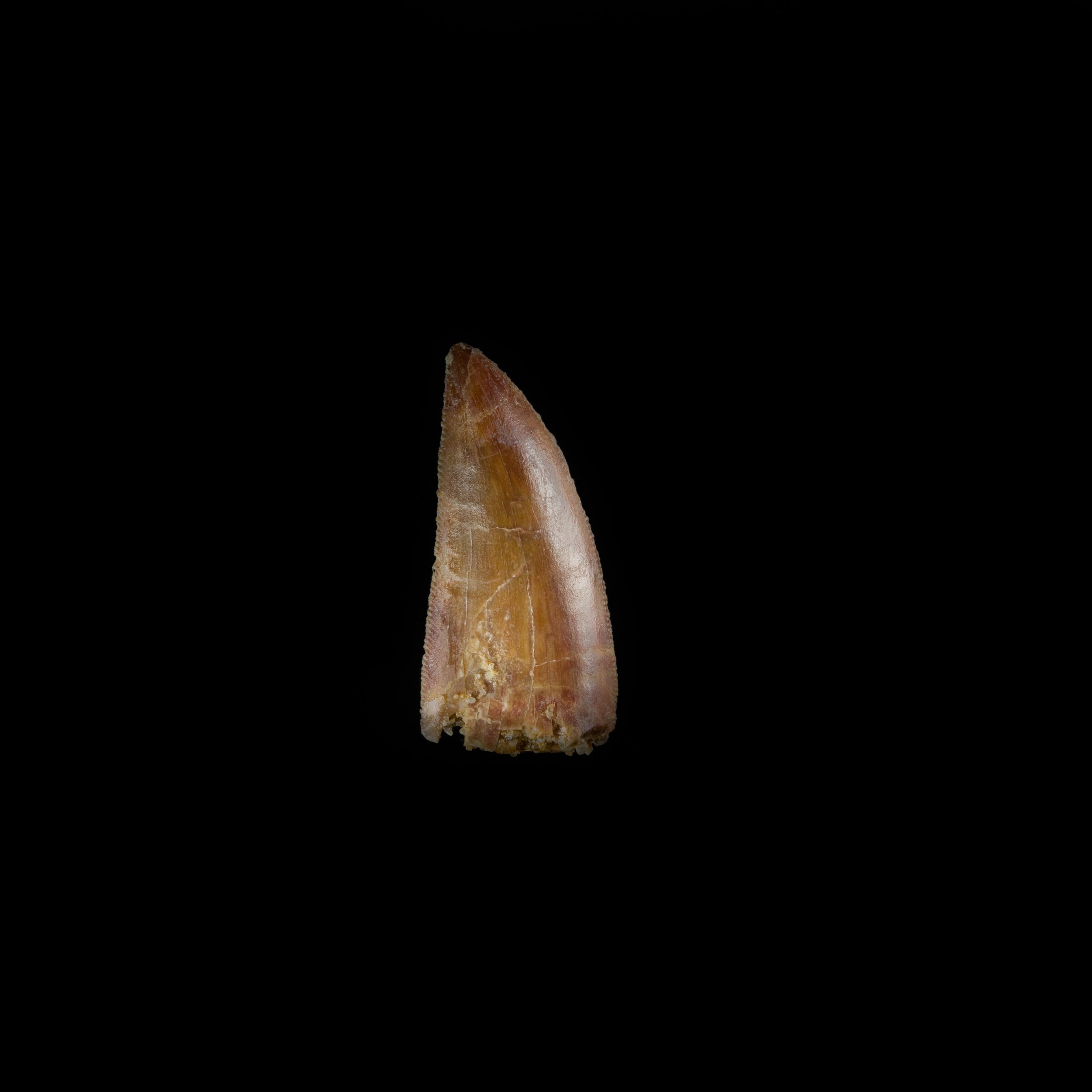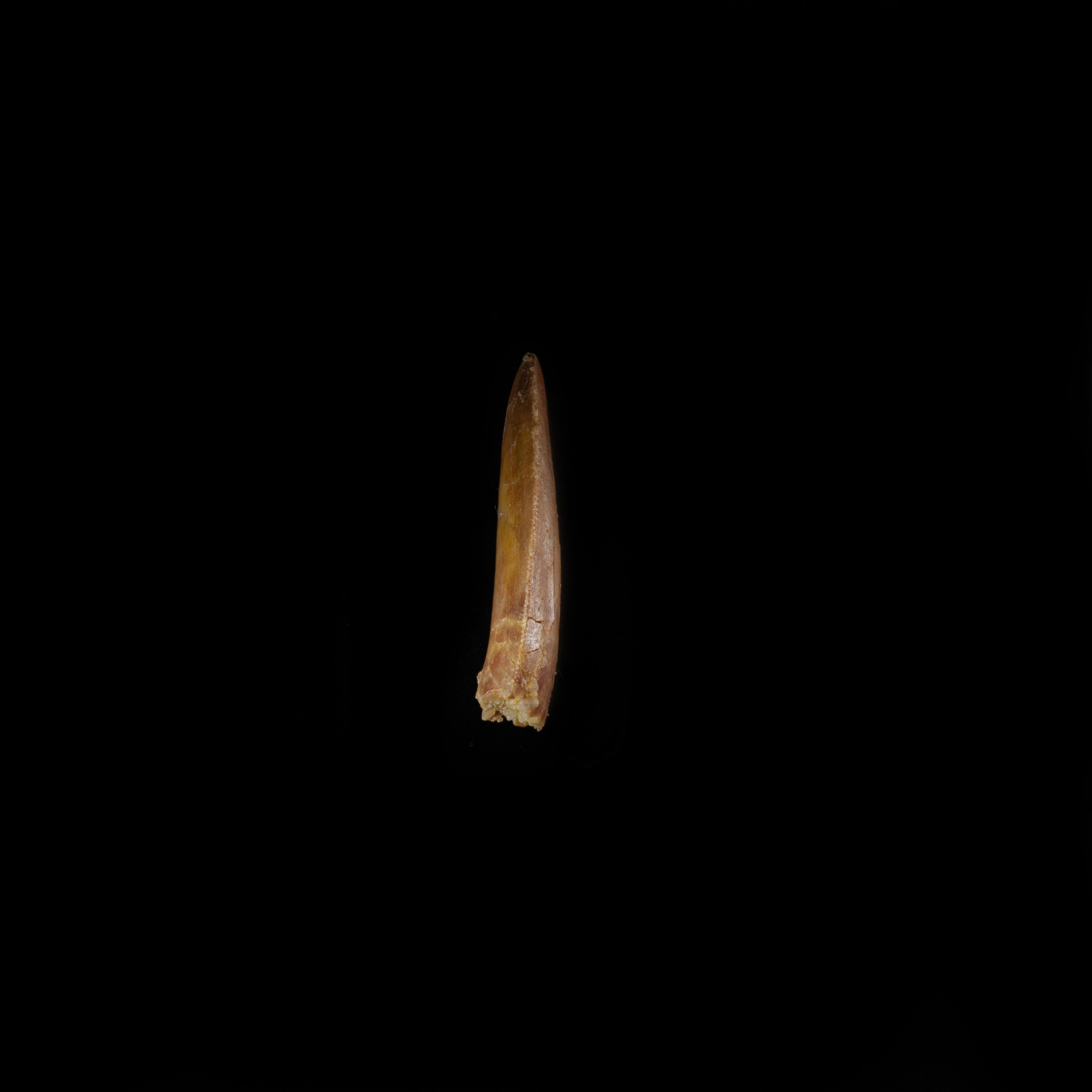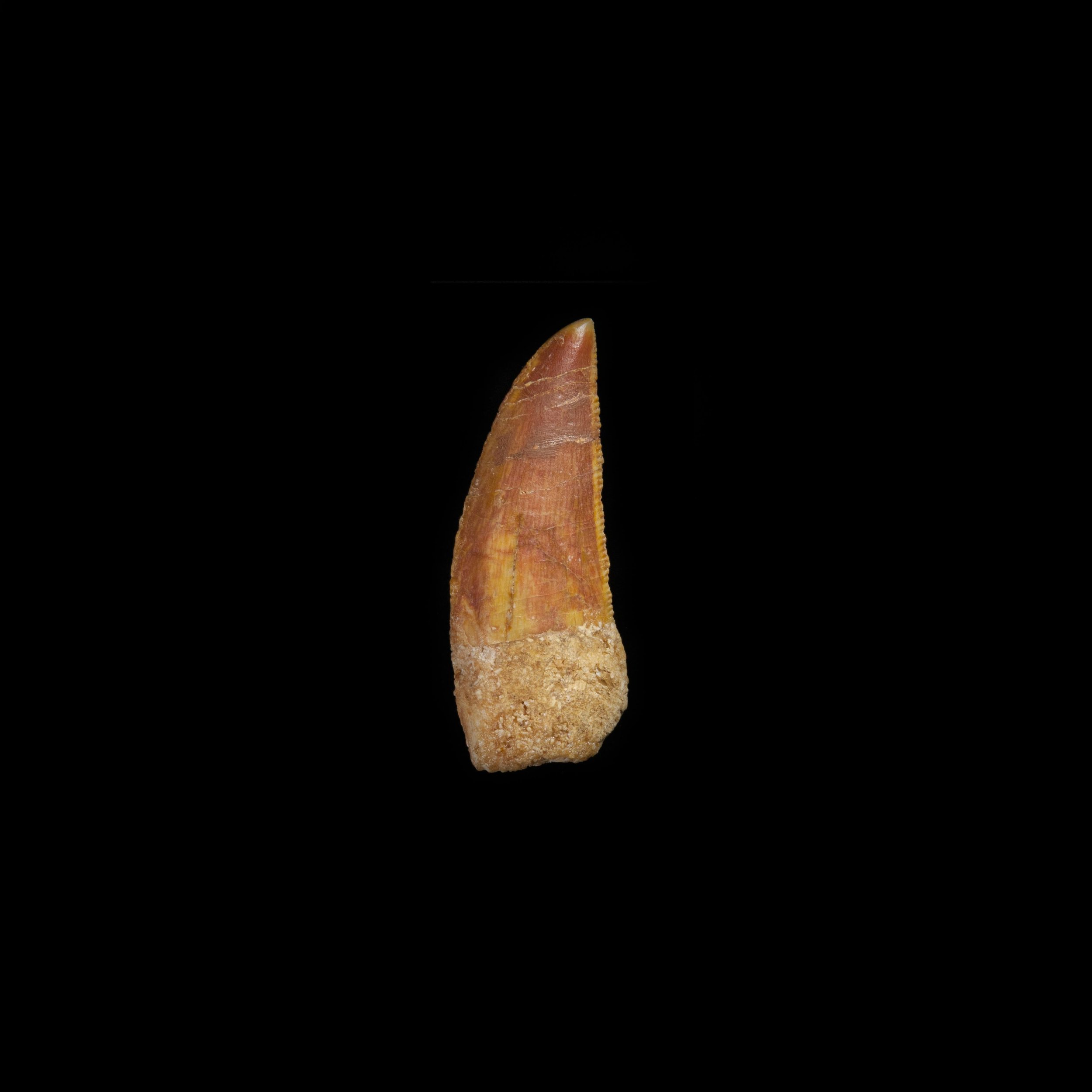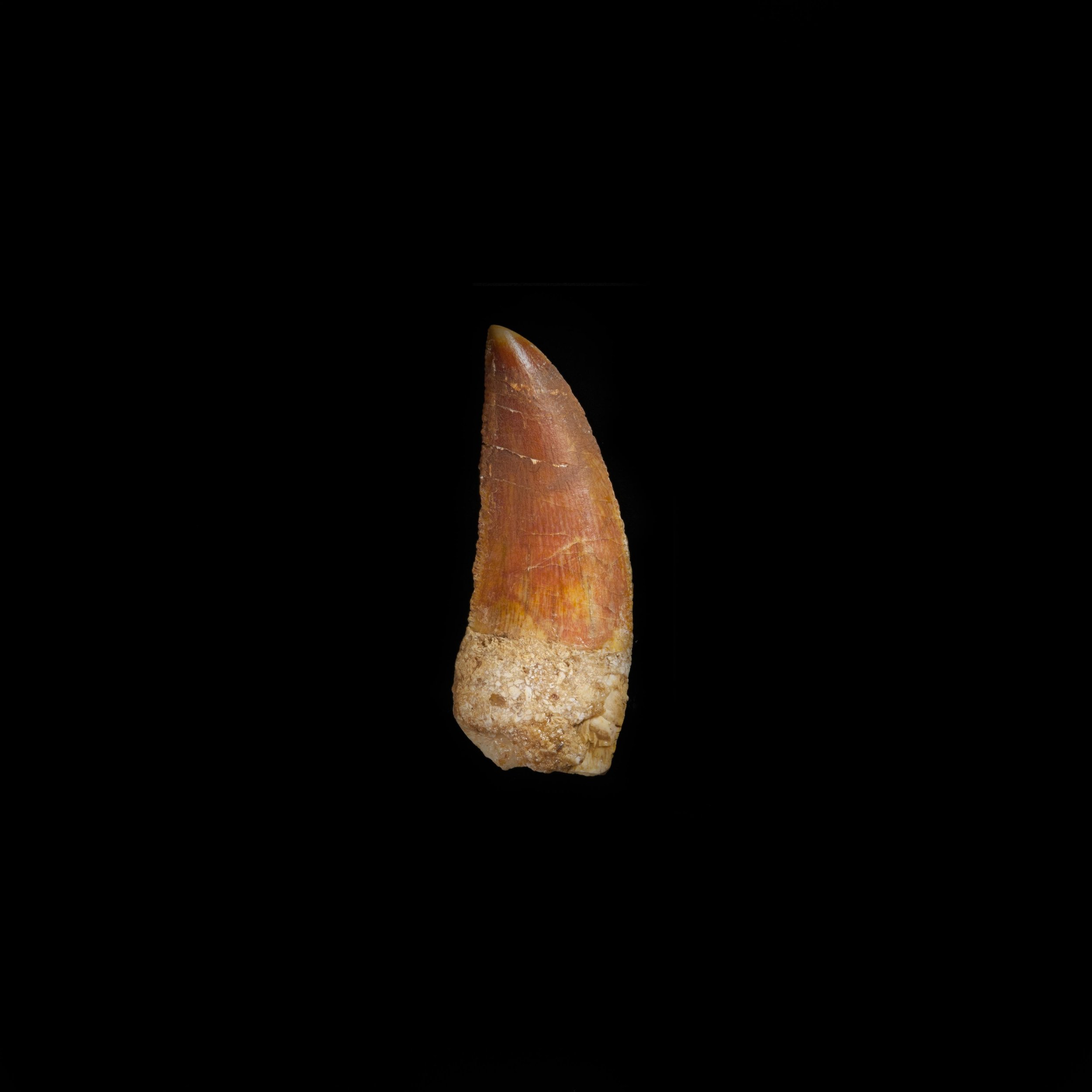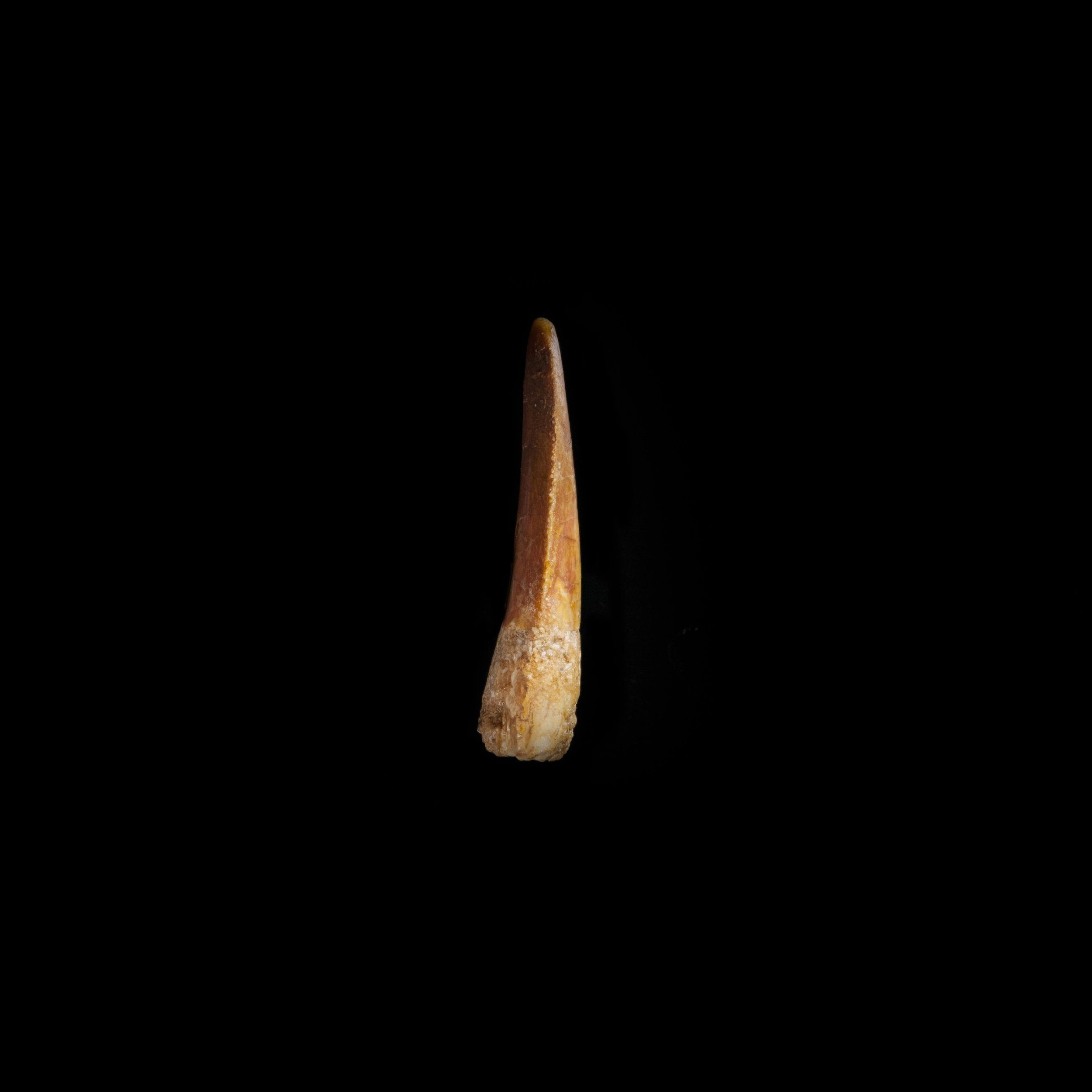Tyrannosaur - Nanotyrannus cf. lancensis
Vendor: Fossil Soup
SKU Number: SQ7106846
A controversial genus of Tyrannosaurid dinosaur that is still in question and may in fact be a Juvenile T-Rex. Nanotyrannus is a carnivorous theropod that lived at the very end of the Mesozoic era around 66-67 million years ago.
This tooth comes from the Hell Creek Formation, Harding County, South Dakota. This is an opportunity to acquire a good beginners tooth at a very reasonable price. It is an example of a lateral maxillary or dentary (upper or lower jaw) tooth that exhibits some heavy wear to the carinae on both the mesial and distal edges.
One side of the tooth has been crushed and the overall thickness would be considered thin. There does not appear to have been any repair or restoration to the tooth. The crown appears to have been either worn down or suffered some erosion. It should be noted that it is very difficult to determine tooth position based on the inspection of isolated examples. Therefore we use certain morphological features to suggest general location. A morphological diagram is provided further down the page.
Full dimensions are listed below.
Vendor: Fossil Soup
SKU Number: SQ7106846
A controversial genus of Tyrannosaurid dinosaur that is still in question and may in fact be a Juvenile T-Rex. Nanotyrannus is a carnivorous theropod that lived at the very end of the Mesozoic era around 66-67 million years ago.
This tooth comes from the Hell Creek Formation, Harding County, South Dakota. This is an opportunity to acquire a good beginners tooth at a very reasonable price. It is an example of a lateral maxillary or dentary (upper or lower jaw) tooth that exhibits some heavy wear to the carinae on both the mesial and distal edges.
One side of the tooth has been crushed and the overall thickness would be considered thin. There does not appear to have been any repair or restoration to the tooth. The crown appears to have been either worn down or suffered some erosion. It should be noted that it is very difficult to determine tooth position based on the inspection of isolated examples. Therefore we use certain morphological features to suggest general location. A morphological diagram is provided further down the page.
Full dimensions are listed below.
Vendor: Fossil Soup
SKU Number: SQ7106846
A controversial genus of Tyrannosaurid dinosaur that is still in question and may in fact be a Juvenile T-Rex. Nanotyrannus is a carnivorous theropod that lived at the very end of the Mesozoic era around 66-67 million years ago.
This tooth comes from the Hell Creek Formation, Harding County, South Dakota. This is an opportunity to acquire a good beginners tooth at a very reasonable price. It is an example of a lateral maxillary or dentary (upper or lower jaw) tooth that exhibits some heavy wear to the carinae on both the mesial and distal edges.
One side of the tooth has been crushed and the overall thickness would be considered thin. There does not appear to have been any repair or restoration to the tooth. The crown appears to have been either worn down or suffered some erosion. It should be noted that it is very difficult to determine tooth position based on the inspection of isolated examples. Therefore we use certain morphological features to suggest general location. A morphological diagram is provided further down the page.
Full dimensions are listed below.
Additional Information
Tyrannosaurus rex was a large theropod dinosaur that lived throughout what is now western North America, on what was then an island continent known as Laramidia. Teeth attributed to Nanotyrannus are still heavily debated, and may in fact be juvenile T. rex teeth.
T. rex was one of the largest land carnivores of all time. One of the largest and the most complete specimens, nicknamed Sue, is located at the Field Museum of Natural History. Sue measured 12.3–12.4 m (40.4–40.7 ft) long, was 3.66–3.96 meters (12–13 ft) tall at the hips, and according to the most recent studies, using a variety of techniques, maximum body masses have been estimated approximately 8.4 metric tons (9.3 short tons).

